A comprehensive guide to part-time PhDs
Doing a PhD part-time can be an attractive option for many reasons. However, part-time PhDs are less common than full-time ones, and there tends to be a lack of information on this option. This guide to part-time PhDs answers the most common questions that prospective part-time PhD candidates have.

The difference between a part-time and a full-time PhD
How much work is a part-time phd, how long does it take to do a phd part-time, where is it possible to do a phd part-time, benefits of a part-time phd, disadvantages of a part-time phds, is it worth doing a part-time phd, skills necessary for completing a phd part-time, conditions for success in a part-time phd, online part-time phd programmes, ten questions to ask yourself before embarking on a part-time phd.
The main difference between a part-time and a full-time PhD is typically the amount of time that a student spends per week on PhD-related tasks. The typical length of a full-time work week is five 8-hour days, comprising 40 hours in total. In some countries, this includes breaks. Thus, 38-40 hours/week can generally be considered full-time employment.
A part-time PhD carries fewer hours per week than full-time employment.
Precise definitions of part-time work differ. While some consider part-time employment as anything less than 38 hours/week, the OECD for instance defines part-time workers as those who work less than 30 hours/week.
Some universities have minimum requirements for part-time PhDs, for example, a minimum of 20 hours/week. Others, however, are more flexible. They allow part-time PhD candidates to spend anything between a few hours to several days per week on their part-time PhD studies.
Coursework that is required in PhD programmes is generally adjusted to part-time candidates and stretched over a longer period. The same is true for certain deadlines and comprehensive exams if required.
The degree that is awarded upon successful completion of a part-time PhD is the same as those being awarded for completing full-time programmes.
Most degree certificates don’t even mention that a PhD was pursued on a part-time basis. There is no reason to worry that a part-time PhD degree may be perceived as worth less than a full-time one.
A part-time PhD requires pretty much the same amount of work as a full-time PhD. Part-time PhD programmes are spread out over a longer period, but the requirements in terms of credits and output ( a monograph or cumulative dissertation ) are usually the same.
Part-time PhD candidates are often highly aware of their time limitations. In turn, they may be better at utilizing their limited time during the week. For instance by minimizing procrastination, prioritizing tasks and making strategic decisions. However, this is difficult to generalise.
Part-time PhD students may be more inclined to work during evenings and weekends.
Other responsibilities during the ‘normal’ working hours result in less attention to PhD-related work. And sometimes, PhD work requires several hours of uninterrupted deep work.
In some cases, the lack of opportunities to focus on the PhD for a longer period can increase frustrations and stress levels. This is particularly true when part-time PhD students start together with a cohort of full-time PhD students and compare their progress with that of their full-time peers.
Ultimately, how much work a part-time PhD requires depends very much on a student’s research project, personality, efficiency, subjective perception of workload and stress, supervision, luck with experiments, and so on. This does not differ from a full-time PhD.
In most cases, a part-time PhD takes longer than a full-time PhD. A general rule of thumb is that the fewer hours someone spends on a PhD per week, the longer it takes to complete it.
The number of years that full-time PhD students take to complete a PhD varies. Some finish in three years. Others require four, five or more years. Thus, there is a huge variation in the time it takes to finish a PhD. The same is true for part-time PhDs.
There are also differences between universities. Some universities have a strict programme that takes, for instance, three years for full-time PhD students and six years for part-time PhD students.
Other universities adapt to the specific circumstances of individual PhD candidates. They may allow someone to finish a part-time PhD in three years as long as all requirements are met. But they may also be okay with a part-time candidate who spends a decade on his or her PhD studies.
Can you complete a part-time PhD programme? Yes, absolutely.
But due to the vast differences between universities as well as PhD programmes, it is essential to inform yourself properly before applying for a part-time PhD.
The regulations in terms of length of a part-time PhD have a major effect on a PhD trajectory, time planning, tuition fees if applicable, etcetera.
There are plenty of opportunities to do a PhD part-time, but the specific opportunities and arrangements depend very much on individual universities.
Some universities advertise specific part-time PhD programmes on their web pages. Or, with a little bit of digging, provide information online for those who are interested in part-time PhDs.
For other universities, it is difficult to find any information on part-time PhD programmes online. This does not always mean that there are no opportunities. Sometimes, it requires sending emails to the admissions office, or contacting a potential PhD supervisor directly to ask for part-time possibilities.
There are also differences in national contexts. In some countries, for instance, in Germany, part-time PhD studies are often the norm. In Germany, many paid positions exist that encompass 60% of a full-time equivalent: time during which a PhD student is required to work in a lab or assist a professor. In the remaining 40% of the time, which is unpaid, a PhD student is expected to work on a dissertation.
In some other countries, PhD students tend to be employed in the public sector, receive a salary and make pension contributions. In those cases, they tend to fall under the same regulations as the non-academic workforce. This can mean, for instance, that they have the right to change their contract to part-time, for instance in the case of care responsibilities.
There are many benefits to doing a PhD part-time. Some of the most common advantages are
- More secure finances: Many full-time PhD students experience financial insecurities because PhD scholarships are often not enough to cover living expenses, or do not cover the whole PhD trajectory. Part-time PhD students often work next to their PhD studies which provide additional income and a layer of financial security.
- Improved employability: This includes industry employability and employability in academia. Industry employability is enhanced if someone already gains substantial work experience outside academia, through working in a certain profession while doing a part-time PhD. Employability in academia is enhanced if someone already gains academic work experience (for example as a research assistant) and teaching experience (for example as a junior lecturer or teaching assistant) while doing a part-time PhD.
- Flexibility: Doing a PhD part-time tends to provide increased flexibility. For instance, students who have care responsibilities are more likely to be able to combine their PhD studies with their other responsibilities on a part-time basis.
- Efficiency: The advantage of many part-time PhDs is that they are very aware of their time limitations and force themselves to be strategic in their choices. Part-time PhD students also often benefit from existing work experience and tend to be a bit older than full-time students. Combined, they sometimes are more confident and struggle less with imposter syndrome. Since procrastination is essentially linked to a fear of failure, part-time PhD students on average may be more confident, suffer less from procrastination and are therefore able to work more efficiently.
There are also disadvantages and challenges in part-time PhDs. Some of the most common disadvantages of doing a PhD part-time are:
- Difficulty to maintain a work-life balance: ‘Getting it all done’ is always challenging. Adding a part-time PhD to existing tasks, activities and responsibilities can negatively affect a person’s work-life balance. Part-time PhDs frequently require multi-tasking, which can interrupt the flow of work and lead to mistakes. Furthermore, evenings, weekends and holidays may be the only times when uninterrupted PhD work for several hours or days is possible. When part-time PhD students are not very good with boundary setting, they can easily feel overwhelmed and as if they can never take a break.
- Tuition fees: While not all PhD students (regardless of whether full-time or part-time) have to pay tuition fees, many do. Tuition fees tend to be adjusted in part-time programmes. Nonetheless, paying tuition fees for several years can be a financial burden. In addition, part-time PhD students are not always eligible for all scholarships and funding opportunities.
- Less supervision: Part-time PhD students often work even more independently than their full-time counterparts. Of course, the amount of supervision differs for full-time PhD students as well. However, a simple reason for less supervision is simply that part-time PhD students are not always physically present in a lab or department. They have less spontaneous interactions with their supervisors and other professors. It reduces the opportunities to ask a quick question or get feedback on a small issue. Part-time PhD students may be more reliant on more formal, scheduled meetings every few weeks or months.
- Feelings of isolation: Part-time PhD students may feel disconnected and isolated due to a lot of independent work, less physical presence and opportunities to connect with colleagues and peers. Furthermore, part-time PhDs tend to be in the minority, as full-time PhDs are still more common. This means that part-time PhDs may feel misunderstood and have no one to share their unique experiences and challenges with.
Following your curiosities and researching a topic in-depth can be a wonderful thing.
Yet, the question of whether a PhD part-time is worth doing or not is difficult to answer. It depends on the unique situation and ambition of each person in question.
Some people embark on a PhD part-time to progress in their career. Some people hope for a financial reward after completing a PhD part-time. Some people intend to change careers and use a part-time PhD to start the process while still earning money in a different job. Some people look for a challenge and embark on a part-time PhD for self-fulfilment. Some people have no other option but to do a PhD part-time.
Every person has to decide for him- or herself whether it is worth it, sensible and feasible. The decision requires a lot of self-reflection, and financial and life planning.
The decision to do a part-time PhD should not be treated lightly.
Completing a PhD part-time requires several skills. These skills can be learnt. However, a complete lack of these skills at the start of a part-time PhD will make the trajectory much more challenging.
First of all, part-time PhDs benefit from a high degree of self-discipline.
Those who struggle to motivate themselves and to get the smallest task done without any external pressure, might not be the best candidates for part-time PhDs. Part-time PhD work requires a lot of self-discipline as well as self-motivation.
Next, the ability to multi-task and keep a cool head in stressful situations is a big advantage for those who embark on a part-time PhD.
Stressing out easily and feeling easily overwhelmed with many tasks and deadlines, on the other hand, is counterproductive in a part-time PhD.
Furthermore, flexibility and the ability to adapt to different circumstances is pivotal.
Part-time PhD students tend to wear many different hats. They need to be able to switch between different roles and juggle lots of different tasks and responsibilities.
Additionally, not everything will work according to plan. Part-time PhD students have to accept that things do not always work out as expected and have to quickly adapt to new situations.
Lastly, the ability to work independently can make or break a part-time PhD trajectory. Working on a PhD part-time often means working from home, alone, without social interaction and constant feedback opportunities. Not everyone is cut out for this type of work.
A fundamental condition for success in a part-time PhD is the selection of a fitting research topic.
As in any PhD, regardless of whether full- or part-time, a PhD student spends many waking hours on the topic. If the topic is not interesting to the PhD student, and he or she is not passionate about it, motivation to work on it will inevitably decrease over time.
At the same time, the most passionate and skilled PhD student may still struggle if the institutional environment and supervision are suboptimal.
A supportive institutional environment that assists, accommodates, and invests in part-time PhD students can make a world of difference.
Probably even more important than the institutional environment is a good relationship between the part-time PhD student and PhD supervisors.
The quality and quantity of supervision matters, but also the social compatibility between students and supervisor/s. Therefore, applying to a programme without having ever met the prospective supervisor in person is a risky business.
If a prospective PhD student intends to continue working part-time in a different job, all parties should be informed and agree with the arrangements. If there is a connection between the PhD topic and the job, some employers even enter a formal arrangement that allows the student to do PhD work during some ‘normal’ working hours.
Pulling off a part-time PhD without all parties approving, or even knowing about it, can create a lot of problems along the way.
Lastly, a certain degree of financial security is required. Of course, this depends on the unique financial arrangements made by a part-time PhD. However, if other work, scholarships or grants are not enough to cover living expenses during a part-time PhD, it is not advisable to embark on this journey.
While online, part-time PhD programmes were available before the Covid19 pandemic, they have become much more common in the last two years. There are some strong opinions when it comes to online, part-time PhD programmes.
Proponents of these online programmes highlight how they can help to create a more level playing field . It allows PhD candidates, for instance, to live in a low-cost living area, while following a PhD at a prestigious university in a high-cost of living area.
Opponents lament the decreasing quality of PhD supervision in online PhD programmes. Some argue that doing a PhD increasingly becomes increasingly financialised, with universities collecting tuition fees but not providing adequate support.
However, with everything, this is very difficult to generalise . It requires prospective PhD students who are interested in these programmes to inform themselves thoroughly and to decide on a personal basis whether an online programme is a good fit or not. Speaking with others who already do, or finished, online part-time PhD programmes might be particularly useful.
If you consider embarking on a part-time PhD, your decision can be supported by asking (yourself) the following questions:
- What is my motivation to do a part-time PhD?
- Am I passionate enough about my (potential) research topic to spend several years working on it?
- What are the potential advantages and disadvantages of doing a part-time PhD, and how can I mitigate the disadvantages?
- Do I have enough self-discipline and endurance to do a part-time PhD with limited supervision?
- Do I have the flexibility to incorporate potential coursework into my day-to-day agenda?
- How many hours/week do I want to spend on my PhD, and how many hours can I (afford to) spend on it?
- What are the part-time PhD regulations of the university/universities where I consider applying?
- Is the (potential) PhD supervisor a good fit, and does the institutional environment seem supportive of part-time PhD students?
- How can I finance the part-time PhD?
- What do I want to do after completing the PhD?
Get new content delivered directly to your inbox!
Subscribe and receive Master Academia's quarterly newsletter.
Public speaking in academia and how to practice it
Strong academic networks through shared activities, related articles.
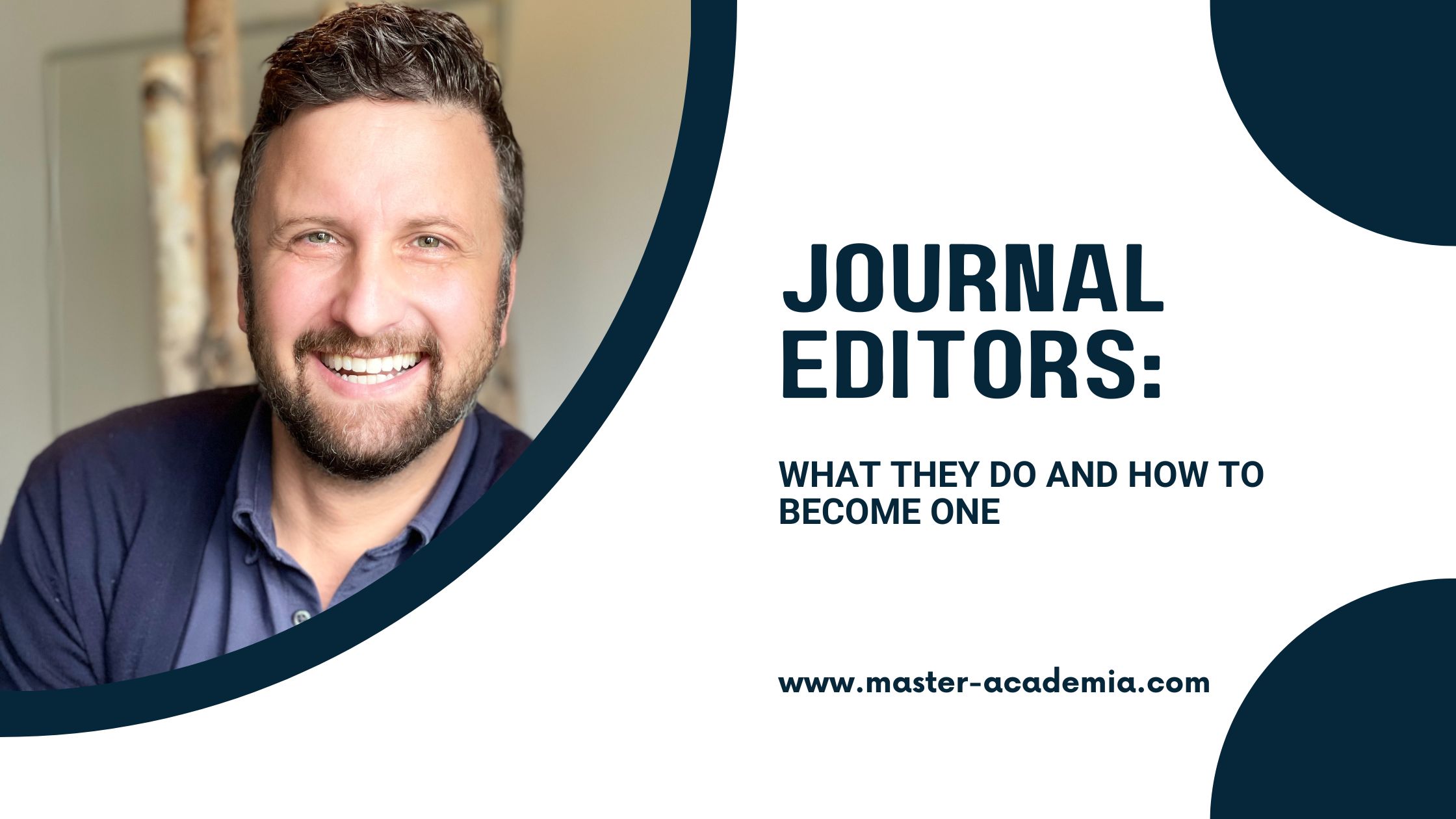
Journal editors: What they do, and how to become one
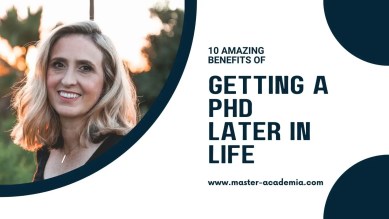
10 amazing benefits of getting a PhD later in life

The best answers to “Why do you want to do a PhD?”

Ten reasons to pursue an academic career
25 Best Part Time PhD Programs [2024 Guide]
Explore part time PhD programs. Compare schools and see why you should consider earning your doctorate part time.

If work or other responsibilities have been holding you back from diving headfirst into doctoral studies, consider part time PhD programs instead.
Editorial Listing ShortCode:
You may enroll in an on-campus or online PhD program to earn your doctoral credentials on a schedule that fits your busy lifestyle.
Universities Offering PhD and Other Doctorate Programs Online
Methodology: The following school list is in alphabetical order. To be included, a college or university must be regionally accredited and offer degree programs online or in a hybrid format.
1. Andrews University
Andrews University is a private university in Berrien Springs, Michigan, that is affiliated with the Seventh-day Adventist Church. Founded in 1874, Andrews has a current annual enrollment of 3,366.
Students can pursue 130 undergraduate and 70 graduate majors across eight schools and colleges. Degrees at the bachelor’s, master’s, and doctoral levels are available.
- PhD in Curriculum and Instruction
- PhD in Educational Leadership
- PhD in Higher Education Administration
- PhD in Leadership
Andrews University is accredited by the Higher Learning Commission.
2. Clemson University
Clemson University is a public research university located in Clemson, South Carolina. Founded in 1889, Clemson boasts an annual student enrollment nearing 30,000. U.S. News & World Report ranks Clemson University in 24th place among all public universities.
Students can pursue bachelor’s, master’s, and doctoral degrees across Clemson’s seven schools and colleges.
- PhD in Healthcare Genetics
- PhD in Parks, Recreation and Tourism Management
- PhD in Rhetorics, Communication and Information Design
Clemson University is accredited by the Southern Association of Colleges and Schools Commission on Colleges.
3. George Washington University
Chartered in 1821 by an act of the United States Congress, George Washington University stands today as a private research university with an annual enrollment of more than 27,000. GWU is divided into 14 colleges and schools offering bachelor’s, master’s, and doctoral programs.
The Princeton Review consistently ranks George Washington University as a top college in a number of categories. In addition, GWU has been ranked as one of the Top Universities for Producing Billionaires by the Times Higher Education’s World University Rankings.
- PhD in Nursing
- PhD in Systems Engineering
GW is regionally accredited by the Middle States Commission on Higher Education.
4. Hampton University
Hampton University is a private, historically black university located in Hampton, Virginia, that was founded in 1868. The university is comprised of 10 accredited schools and colleges offering 50 bachelor’s programs, 26 master’s programs, and seven doctoral programs. The Alumni Factor has named Hampton one of the best colleges in Virginia.
- PhD in Business Administration
- PhD in Educational Management
Hampton University is accredited by the Commission on Colleges of the Southern Association of Colleges and Schools.
5. Indiana State University
Indiana State University is a public university located in Terre Haute, Indiana, with a history dating back to 1865. ISU offers more than 100 undergraduate majors and 75 graduate. Students can pursue 20 bachelor’s degrees, 22 master’s degrees, and seven doctoral degrees on campus and online through ISU’s six academic colleges.
- PhD in Educational Administration – Higher Education Leadership
- PhD in Educational Administration – School Administration
- PhD in Technology Management
Indiana State University is accredited by the Higher Learning Commission.
6. Keiser University
Keiser University is a private university based in Fort Lauderdale, Florida. Founded in 1977, Keiser offers bachelor’s, master’s, and doctoral programs available both on campus and online. Money magazine has rated Keiser University one of the top colleges for the money in Florida. Nearly 20,000 students study at Keiser.
- PhD in Criminal Justice and Criminology
- PhD in Industrial and Organizational Psychology
- PhD in Instructional Design and Technology
Keiser University is accredited by the Southern Association of Colleges and Schools Commission on Colleges.
7. Liberty University
Liberty University is a private evangelical Christian university founded in Lynchburg, Virginia, in 1971. The school consists of 17 distinct colleges offering a wide variety of bachelor’s, master’s, and doctoral programs. Programs are divided between 366 on-campus options and 280 online options.
- PhD in Bible Exposition
- PhD in Communication
- PhD in Criminal Justice
- PhD in Criminal Justice – Homeland Security
- PhD in Criminal Justice – Leadership
- PhD in Education – Curriculum and Instruction
- PhD in Education – Instructional Design and Technology
- PhD in Education – Organizational Leadership
- PhD in Education – Special Education
- PhD in Higher Education Administration – Educational Leadership
- PhD in History
- PhD in Nursing – Nursing Education
- PhD in Psychology – Developmental Psychology
- PhD in Psychology – Industrial/Organizational Psychology
- PhD in Psychology – Social Psychology
- PhD in Public Policy
- PhD in Public Policy – Economic Policy
- PhD in Public Policy – Education Policy
- PhD in Public Policy – Foreign Policy
- PhD in Public Policy – National Security
- PhD in Public Policy – Social Policy
- PhD in Strategic Media
- PhD in Theology and Apologetics
Liberty University is accredited by the Southern Association of Colleges and Schools Commission on Colleges.
8. Mississippi State University
Mississippi State University is a public research university located near Starkville, Mississippi, that is classified among RI Doctoral Universities for very high research activity. MSU’s more than 22,000 enrolled students can pursue more than 180 areas of study for bachelor’s, master’s, and doctoral degrees. The school was founded in 1878.
- PhD in Community College Leadership
- PhD in Computational Engineering
- PhD in Electrical and Computer Engineering
- PhD in Engineering – Aerospace Engineering
- PhD in Engineering – Civil Engineering
- PhD in Engineering – Mechanical Engineering
- PhD in Industrial & Systems Engineering
Mississippi State University is accredited by the Southern Association of Colleges and Schools Commission on Colleges.
9. North Carolina A&T State University
North Carolina Agricultural and Technical State University is a public, historically black university located in Greensboro, North Carolina. The school was founded in 1891 by the North Carolina General Assembly. It is ranked among the top historically black colleges and universities (HBCUs) by U.S. News & World Report.
A total of 54 bachelor’s, 29 master’s, and nine doctoral degrees are offered through the school’s eight colleges.
- PhD in Leadership Studies
North Carolina Agricultural and Technical State University is accredited by the Southern Association of Colleges and Schools Commission on Colleges.
10. Texas Tech University
Established in 1923, Texas Tech University is a public research university in Lubbock, Texas, featuring 13 colleges and 60 research centers. The Princeton Review has ranked Texas Tech among the 125 best colleges in the Western United States.
Texas Tech offers 150 options for bachelor’s degrees, 110 options for master’s degrees, and 59 doctoral degree programs.
- PhD in Curriculum and Instructions – Curriculum Studies and Teacher Education
- PhD in Curriculum and Instructions – Language, Diversity & Literacy Studies
- PhD in Curriculum and Instructions – STEM
- PhD in Educational Leadership Policy
- PhD in Family and Consumer Science Education
- PhD in Special Education
Texas Tech University is accredited with the Southern Association of Colleges and Schools Commission on Colleges.
11. University at Buffalo
Founded in 1846, the University at Buffalo a public research university with campuses in Buffalo and Amherst, New York. Nearly 32,000 students are enrolled in what is considered to be the largest public university in New York. UB offers bachelor’s, master’s, and doctoral degrees across 13 academic schools and colleges.
- PhD in Information Science
The University at Buffalo is accredited by the Middle States Commission on Higher Education.
12. University of Alabama – Huntsville
The University of Alabama in Huntsville was founded in 1950. It is one of three members of the University of Alabama System. UAH school awards 44 bachelor’s, 30 master’s and 15 doctoral degrees across nine colleges to a study body of nearly 10,000.
UAH is a space-grant university with a large focus on engineering and science programs.
- PhD in Civil Engineering
- PhD in Engineering Management
- PhD in Industrial Engineering
- PhD in Joint Nursing Science
UAH is accredited by the Southern Association of Colleges and Schools Commission on Colleges.
13. University of Colorado – Denver
A member of the University of Colorado system, the University of Colorado Denver is a public research facility offering hundreds of degree programs for bachelor’s, master’s, and doctoral studies across dozens schools and colleges.
Total annual enrollment stands at 24,910. Forbes places the University of Colorado Denver 34th on the its list of best public colleges.
University of Colorado – Denver is accredited by the Higher Learning Commission.
14. University of Florida
The University of Florida is a public land-grant, sea-grant, and space-grant research university with a main campus in Gainesville, Florida. This senior member of the State University System of Florida offers bachelor’s, master’s, and doctoral programs to the more than 56,000 students that enroll annually.
The list of notable UF alumni includes Erin Andrews, Emmitt Smith, Faye Dunaway, and Marc Rubio.
- PhD in Classical Civilization
- PhD in Latin and Roman Studies
The University of Florida is regionally accredited by the Southern Association of Colleges and Schools.
15. University of Kansas
The University of Kansas is a public research university based in Lawrence, Kansas. Founded in 1865, KU offers more than 345 degree programs for bachelor’s, master’s, and doctoral studies. KU has an annual enrollment of more than 28,400 students.
The school’s faculty and alumni list includes four NASA astronauts, seven Pulitzer Prize winners, 27 Rhodes Scholars, and 325 Fulbright Scholars.
The University of Kansas is accredited by the Higher Learning Commission.
16. University of Missouri
The University of Missouri was founded in 1839 as the flagship of the University of Missouri System. Mizzou currently offers more than 300 bachelor’s, master’s, and doctoral degree programs across 13 major academic divisions for its more than 30,000 enrolled students.
- PhD in Architectural Studies
The University of Missouri is accredited by the Higher Learning Commission.
17. University of North Carolina – Greensboro
The University of North Carolina at Greensboro is a public research university located in Greensboro, North Carolina, that dates back to 1891. This school with an annual enrollment topping 20,000 is part of the University of North Carolina system.
More than 100 bachelor’s, 61 master’s, and 26 doctoral programs are offered at UNCG.
The University of North Carolina at Greensboro is accredited by the Southern Association of Colleges and Schools Commission on Colleges.
18. University of North Dakota
Located in Grand Forks, the University of North Dakota offers 90 bachelor’s majors, 54 master’s programs, and 27 doctoral programs. UND was founded in 1883. Currently, UND has an annual enrollment of 13,581 students spread across its 10 academic divisions. The school’s athletic teams compete in the NCAA’s Division I.
- PhD in Aerospace Sciences
- PhD in Biomedical Engineering
- PhD in Chemical Engineering
- PhD in Electrical Engineering
- PhD in Energy Engineering
- PhD in Environmental Engineering
- PhD in Indigenous Health
- PhD in Petroleum Engineering
The University of North Dakota is accredited by the Higher Learning Commission of the North Central Association of Colleges and Schools.
19. University of South Carolina
The University of South Carolina is a public research university located in Columbia, South Carolina. The more than 35,000 students enrolled at USC today can study toward bachelor’s, master’s, and doctoral degrees from 14 degree-granting colleges and schools. The school’s history dates back to 1801.
- PhD in Computer Engineering
- PhD in Computer Science
- PhD in Mechanical Engineering
- PhD in Nuclear Engineering
University of South Carolina is accredited by the Southern Association of Colleges and Schools Commission on Colleges.
20. University of South Dakota
The University of South Dakota is a public research university in Vermillion, South Dakota, with an enrollment of nearly 10,000 students. The university is divided between seven colleges offering hundreds of bachelor’s, master’s, and doctoral degrees. USD’s campus is home to the National Music Museum. The school was founded in 1862.
- PhD in Health Sciences
USD is accredited by the North Central Association of Colleges and Secondary Schools.
21. University of Southern Mississippi
The University of Southern Mississippi is a public research university with a main campus located in Hattiesburg, Mississippi. Southern Miss awards bachelor’s, master’s, and doctoral degrees across more than 189 programs. Founded in 1910, the school boasts an annual enrollment of more than 14,00 students.
Southern Mississippi’s academic offerings are divided across four colleges and schools.
- PhD in Nursing Leadership
The University of Southern Mississippi is accredited by the Southern Association of Colleges and Schools Commission on Colleges.
22. University of Tennessee – Knoxville
Founded in 1794, the University of Tennessee is a public research university located in Knoxville, Tennessee. UT offers bachelor’s, master’s, and doctoral degrees across 10 undergraduate colleges and eleven graduate colleges. Annual enrollment stands at close to 29,000 students.
Established two years before Tennessee officially became a state, the University of Tennessee is one of the oldest public universities in the country.
- PhD in Industrial and Systems Engineering – Engineering Management
The University of Tennessee – Knoxville is accredited by the Southern Association of Colleges and Schools Commission on Colleges.
23. University of the Cumberlands
The University of the Cumberlands is a private university located in Williamsburg, Kentucky, dating back to 1888. Bachelor’s, master’s, and doctoral programs in a variety of specialties in the arts and sciences are offered across four colleges. Total annual enrollment is 13,476.
University of the Cumberlands is accredited by the Southern Association of Colleges and Schools Commission on Colleges.
24. Virginia Commonwealth University
Virginia Commonwealth University is a public research university located in Richmond, Virginia, with a history dating back to 1838. VCU offers more than 217 programs for bachelor’s, master’s, and doctoral degrees across 11 schools and three colleges.
U.S. News & World Report has classified VCU as a Tier 1 University that ranks in 84th place among all public colleges and universities in the United States.
- PhD in Health Related Sciences
VCU is accredited by the Southern Association of Colleges and Schools Commission on Colleges.
25. West Virginia University
Founded in 1875, West Virginia University is a public research university with a main campus in Morgantown, West Virginia. More than 350 academic programs for bachelor’s, master’s, doctoral, and professional degrees are offered through 14 schools and colleges for the nearly 30,000 students who enroll at WVU annually.
Designated among the R1 Research Universities for very high research activity, WVU boasts research partnerships with the Rockefeller Neurosciences Institute and the Federal Bureau of Investigation.
West Virginia University is accredited by the Higher Learning Commission.
Do Part Time PhD Programs Exist?

Yes, part time PhD programs do exist. Universities know that many people have packed schedules. To accommodate busy students, some schools give the option of part-time enrollment in PhD programs online or on-campus.
The idea is that you may work your way through one of these programs while still living at home and holding a regular job — no uprooting your life required.
Many part-time PhD programs are offered online, which can be particularly convenient. Online college allows you to attend the university of your choice without having to move away from your hometown.
You may take classes online, chat digitally with your academic advisors, and work on your dissertation from the comfort of your own home. Even still, there may be some in-person residencies or practicums required.

Finances are one of the best reasons to enroll in a part-time online program. The paycheck that you bring in each week can help you afford your grad school tuition without living on ramen noodles for five years straight.
Of course, being able to hold a full-time job while going through your doctoral program is more than just a way to make money. Particularly if your field of study is relevant to your job, you may find many opportunities to connect your classroom studies to real-world experiences.
It’s even possible that a situation at work may provide inspiration for the topic of your doctoral dissertation. If you feel that a dissertation may prevent you from finishing your PhD, then a professional doctorate may be a better choice.
For example, doctor of education programs don’t require dissertations in many cases. Instead, students may complete a final capstone project to demonstrate subject mastery.
Part-time students don’t make up the majority of doctoral candidates; even still, you certainly won’t be the only one if you choose to go this route. In the past year, approximately 44% of doctoral students were enrolled in part-time programs .
What Are the Most Popular PhD Programs?
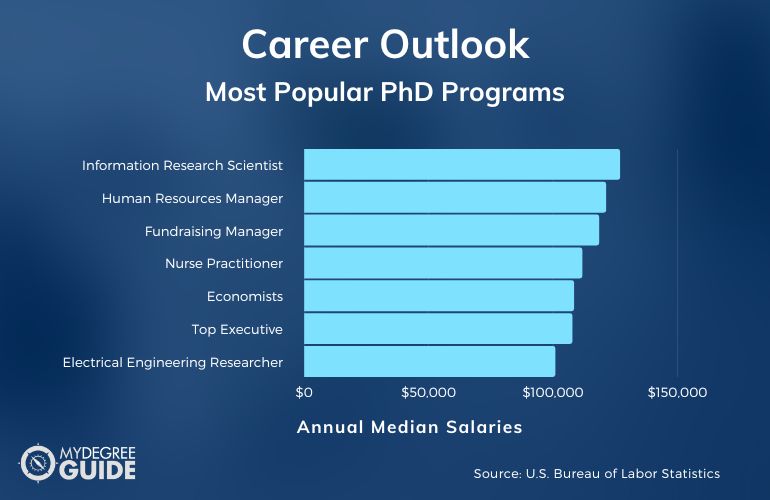
Doctorates are available in practically any field, but some are more common than others. The following table shows some of the top PhDs that you may be able to earn online.
According to the Bureau of Labor Statistics, some related careers and their average salaries include:
Getting your doctorate may certainly increase your earning potential. According to the Bureau of Labor Statistics, the median annual salary for PhDs is $110,200. That’s a large jump from $78,210, the average annual earnings for those with a master’s degree.
How Do Part Time PhD Degree Programs Work?

To graduate from a part-time doctoral program, you’ll need to do the same work that you would for a full-time course of study. You’ll simply spread the work out over a longer stretch of time.
The first portion of your program will likely be devoted to classes. If you’re enrolled on a part-time basis, you’ll probably keep your course load light instead of taking multiple classes at once.
You may be able to take the classes online, but your school may require a few in-person residencies as well.
Some classes will focus on the research methods that are essential for all doctoral candidates to know, such as analyzing data and writing scholarly reports. At this point, you may also start thinking about a topic for your upcoming research project.

Other courses will be related to your field of study. While some classes may be required of every student in your PhD department, others may be electives. That way, you may build a course of study that is tailored to your career goals and research interests.
After completing your classes, your school may require oral or written testing as a way of assessing your knowledge.
Next, you’ll turn your attention toward your dissertation or another final project. This usually requires completing original research and reporting your findings in a detailed paper.
Even for full-time students, it may take several years to complete a dissertation. On a part-time basis, you may be working on this project even longer.
Once you finish your dissertation, the school’s faculty will need to approve it. Then, you’ll answer questions during a defense of your research. If the faculty determines that you have successfully defended your dissertation, you’ll then be awarded your PhD.
How Long Does It Take to Do a PhD Part Time?

How long it takes to complete your PhD through a part-time schedule is largely up to you and how much you can commit to your studies at any point in time.
You may find that there are some seasons in which you’re able to invest a good portion of your time and other seasons when you’re only able to do the bare minimum to keep going.
As a general rule, though, you should expect your part-time studies to last for several years. Being a part-time student won’t exempt you from any of the program’s requirements.
You’ll still need to earn just as many credit hours, complete any residency or internship experiences, and do the same final projects. The work will just be spread out over a longer period of time.

You should probably plan to work on your doctoral program for six to eight years. Some students take even longer. There may be a maximum duration allowed by your program, so be sure to discuss that with your faculty advisor.
Although part-time schooling is convenient, being enrolled in the same program for years on end may start to feel tedious. It’s important to choose an area of study that you really care about.
Your passion for your studies can keep you motivated even when graduation still seems a long way off.
Admission Requirements for a PhD

No matter what type of doctoral program it is, whether it is a part time or an online accelerated doctoral program , they can be competitive and you’ll want to make sure that your application stands out to the admissions committee. The first step is making sure that you meet the requirements and include all necessary documentation.
- Application and fee: Filling out this form gives the committee basic information about you, so be sure to complete it thoroughly. The fee will be non-refundable, even if you aren’t admitted.
- College transcripts: These demonstrate whether you have the appropriate academic background. You will need to hold a bachelor’s degree, and you may need a master’s degree as well. There may be minimum GPA scores required.
- Test scores: Many schools use GRE or GMAT scores to determine whether you have what it takes to succeed in a PhD program. If you’re an international applicant, you may also need TOEFL scores to demonstrate your proficiency with the English language.
- Letters of reference: These should come from academic or professional colleagues who can attest to your commitment and character. Two or three letters may be required.
- Personal statement or research proposal: This is your chance to communicate your study goals. That way, the school can determine whether your interests align with the expertise of the faculty.
Pay close attention to application deadlines. It’s smart to submit your materials a few weeks before the cutoff since schools don’t usually take late applications.
Accreditation for PhD Programs

Accreditation is a process in which an independent organization evaluates a college’s programs and results to determine whether the school is doing a good job of educating students. If the college is up to par, then it receives approval from an accrediting body.
The primary type of accreditation to consider is regional accreditation . There are seven U.S. organizations that have the right to grant regional accreditation.
There are fairly high standards for regional accreditation. As a result, this type of accreditation is well-respected, and employers are often more inclined to select candidates whose degrees come from regionally accredited schools.
Financial Aid for PhD Students

Paying for a doctorate out of pocket can be an overwhelming prospect, but there are a number of options for funding your PhD.
- Fellowships: Based on your personal merits, your school or a private organization may give you fellowship money intended to further your research goals.
- Government grants: If your income qualifies, you may get free tuition help from the state or federal government.
- Government loans: You may have the option to take out low-interest loans from the federal government or your state.
- Private loans: To supplement your financial package, you may also need private loans. Just be aware that these can come with high interest rates.
- Scholarships: You can apply for gift money from a scholarship-granting organization, such as a professional association in your field.
- Stipends: Some schools grant PhD candidates a small stipend. There are usually stipulations to this, and the rules may differ for part-time students.
To find out more, talk to your school’s financial aid department. Be sure to fill out the Free Application for Federal Student Aid (FAFSA) .
Also, if getting a doctorate could benefit your performance at work, you may be able to request tuition assistance from your employer.
Can You Do PhD Part Time?

Yes, you can do a PhD part time. Studying for a PhD doesn’t have to be all-or-nothing. Just as there are part time masters programs , you can likewise enroll in a doctoral program on a part-time basis.
With that approach, you may be able to go to work during the day and take classes or write papers in the evening. It may even be possible to complete the coursework online.
Is PhD Full Time or Part Time?
Both full-time and part-time PhD programs are available. Some people choose to earn their doctorates as quickly as possible by going to school full-time. Others opt to enroll part-time so that they may keep up with work or family responsibilities.
Keep in mind that not all schools give you the choice between full-time and part-time study; their traditional or online doctoral programs may be specifically designed for one or the other.
Is a PhD Worth It?

Yes, a PhD is worth it for many students. The U.S. Bureau of Labor Statistics projected a 5.9% job growth for doctoral or professional degree holders over the next 1o years, faster than the average for all occupations.
Getting a PhD may open new doors. Earning this top degree may grant you entrance into academia as a researcher or a professor.
It may also prepare you to assume high leadership roles and earn more money in your field. Plus, there’s often a sense of personal satisfaction that comes from accomplishing a huge goal like earning a PhD.
If you’re ready to put those three letters after your name, then it’s time to think about enrolling in a doctoral program. Apply to part-time PhD programs so you may pursue your degree without putting your life on hold.


- Part Time PhDs – Everything You Need To Know
- Types of Doctorates
Introduction
Whilst the core activities of a part time PhD are identical of that to a full time PhD, its arrangement is different. This difference is not only in programme duration but also in fees and funding opportunities. In addition to this, part time study also has different benefits and challenges. Therefore, whilst your personal situation may not be ideal for a full time PhD, it could be perfect for a part time one. We’ve outlined these differences as well as the pros and cons of part time study to help you decide whether it’s right for you.
Why Do a Part Time PhD?
Undertaking a part time PhD can be a great option for you if you fall into one of the four categories:
- Financial – a part time PhD provides the opportunity to earn whilst you study. Although you could secure a full time studentship, the stipend it offers may not be enough in all cases, for example, if you’re financially responsible for multiple family members.
- Career – working individuals, especially those who have already advanced several stages in their career, may opt for a Professional Doctorate. A Professional Doctorate is equivalent to a part time PhD, but focuses on a specific professional practice relevant to the individual. It’s usually undertaken when you wish to apply research skills in a professional environment or become more specialised in your industry.
- Caring obligations – part time study offers a greater deal of flexibility compared to its full time equivalent. This can be desirable in situations where the individual has considerable caring obligations, such as a young family.
- Intensity – many students feel that a pursuing a research degree over a longer period of time drastically lowers the intensity of postgraduate study. Part time PhD hours per week are typically around half that of its full time equivalent. This can come with a wide range of physical and mental health benefits.
Part Time PhD Fees
The average tuition fee for part time PhD study in the UK is approximately £2,356 per academic year for home students, and between £8,000 to £12,500 for international students.
This is typically 50% of the fee charged for an equivalent full time doctorate. However, a handful of universities use a prorated fee of up to 60% so it’s important to check the individual fees for each university you are applying to. These additional costs usually cover the admin/overhead fees associated with your time at the university.
Besides the tuition fee, there are several other costs which you need to account for. You can learn about these costs in our full cost breakdown of UK PhDs .
Part Time PhD Funding and Scholarships
As a part time student, most universities will expect you to fund your own studies. This is because nearly all part-time students will work a paying job alongside their studies which can be used to support their education.
However, you may still apply to department or university funding opportunities such as subject-specific bursaries. Besides this, external bodies such as Research Councils , research charities and industrial institutions also offer grants and PhD studentships for research projects related to their field. It’s worth remembering these opportunities are usually very limited and are awarded based on a candidates strength and not their personal situation.
One benefit of selecting a research project related to your employer is that it opens an additional opportunity for funding. It’s not uncommon for an employer to contribute to an employee’s tuition fee if there is a mutual benefit to be had.
How Long Is a Part Time PhD?
The average duration of part time PhDs in the UK is between 6 to 7 years. This is double a full time doctorate.
Universities also set registration periods which limit the minimum and maximum amount of time you can be enrolled in a course. For doctorates, the minimum duration is usually 4 years and the maximum 8 years.
How Many Working Hours per Week?
You will be expected to work half the number of hours of a full time student. Although full time students are expected to work 35 hours a week, in reality, most will work closer to 40 – 45 hours. Therefore, you’ll be expected to dedicate approximately 20 hours each week towards your degree.
However, you won’t always be able to achieve this many hours due to your other commitments. Therefore, working to a frequent and consistent schedule will be more important. Working on your research in irregular intervals or whenever time permits will be an inefficient approach – it’s far better, plus psychologically easier, to commit to a consistent schedule. Though your PhD supervisor may be able to offer guidance in this regard, ultimately the PhD is yours to shape.
Most part time programmes will also have some doctoral training courses with fixed dates, especially those which are organised by industry experts or visiting lecturers. There may also be time restrictions to be aware of if you are a postgraduate researcher involved in laboratory work, particularly where special equipment is needed as this may be rented by the university research centre and only available during certain times in the year.
Part Time PhDs for International Students
If you are an international student wishing to undertake a part time PhD programme in a foreign country, you will need to meet additional requirements.
For example, to study in the UK, you will need to secure both a work visa and a stable job. This is to prove that you can support yourself throughout the full length of your course. Unfortunately, even if you’re able to secure departmental or external funding, you won’t be able to use this to prove an income. Additionally, an international PhD student in the UK will need to demonstrate English proficiency as part of the application process. These entry requirements apply whether the overseas student is pursuing a PhD part-time or for full-time studies.
Finding a PhD has never been this easy – search for a PhD by keyword, location or academic area of interest.
Challenges of a Part Time PhD
It’s generally accepted that undertaking a PhD part time is more challenging than undertaking it full time.
Age – although this shouldn’t be a factor, we know it can cause concern for some. If you have already been working for several years, you may find that some of your research colleagues or academic staff members are the same age or younger than yourself. This could cause apprehension or cultural issues if you fail to keep an open mind.
Detachment – as a research student, you’ll often doubt whether you’re working on the right thing or making sufficient progress. You can expect this feeling to be compounded if you’re studying on a part time basis. This is because you’ll have less interaction with your department, peers and supervisor given you won’t always be on campus.
Time management – juggling a career or significant family obligations with the demanding requirements of a doctoral degree can take its toll. Over the 6 to 7 years, you’ll no doubt encounter periods when your external commitments require more of your time, whether its intensive projects or the need for frequent travel associated with part time courses. During these times there is potential for your research to slip, or worse, become an unwanted burden.
Motivation – having to balance your time and focus with your other commitments can make it difficult to immerse yourself in your research. This often results in a lack of ‘momentum’, which coupled with a journey that’s twice as long, increases the risk of your passion fading out. Unfortunately, because of this, many supervisors observe the drop-out rate of part time students to be greater than that of their full time peers. This isn’t due to a lack of dedication or commitment, but due to the individual no longer being able to balance several demanding obligations without jeopardising their mental or physical well-being.
Funding opportunity availability – as mentioned earlier, since part-time applicants are able to work alongside their studies, there are fewer funding opportunities available to them.
Relevancy – as your doctoral study will take 6 to 7 years to complete, there is a risk that your research will no longer be relevant. This could be for several reasons. For example:
- An individual may be working on a research project very similar to yours. Assuming they are working full time and complete their project before you, it could render your project ‘unoriginal’ depending on the amount of overlap between your findings. It is important to discuss this with potential supervisors who may be aware of similar PhD projects being undertaken.
- New technology or knowledge may be developed which renders your original research question obsolete if the premise it was built on becomes ’outdated’.
- New observations could be made which have the potential to jeopardise your work. For example, a new study may be published which identifies significant limitations behind a method outlined in your research proposal. This would cast serious doubt into the validity of your research findings, and in some cases, may require you to start over with an alternative method.
Browse PhDs Now
Join thousands of students.
Join thousands of other students and stay up to date with the latest PhD programmes, funding opportunities and advice.

Pursuing A Part-Time Phd In Computer Science: What You Need To Know
Earning a PhD is the pinnacle of academic achievement in computer science, opening doors to research, teaching, and leadership roles. But taking 4+ years off work for a full-time program isn’t feasible for everyone.
Part-time PhD options allow professionals to attain this goal while continuing their careers.
If you’re short on time, here’s the key takeaway: Part-time CS PhD programs typically take 5-7 years to complete . They provide flexibility for working students but require diligence to balance school, research, and professional demands.
The Benefits of a Part-Time CS PhD
Progress academically without leaving your job.
A part-time PhD in Computer Science offers the unique opportunity to advance your academic career while still maintaining your professional commitments. This flexibility allows you to continue working in your current job, providing financial stability and practical application of your studies.
Balancing work and study can be challenging, but the rewards are worth it. By pursuing a part-time PhD, you can deepen your knowledge in your chosen field and make significant contributions to the advancement of computer science.
Network with faculty and peers in your field
One of the key advantages of pursuing a part-time PhD in Computer Science is the opportunity to network with esteemed faculty members and like-minded peers who share your passion for the subject. Interacting with experts in the field can provide valuable insights, guidance, and collaboration opportunities.
Attending conferences, workshops, and seminars can further expand your network and expose you to the latest developments in computer science. Building these connections can open doors to new opportunities and enhance your career prospects.
Strengthen research skills and resume
A part-time PhD program allows you to develop and refine your research skills, which are highly valued in the field of computer science. Through conducting in-depth research, analyzing data, and writing scholarly papers, you can enhance your ability to critically think, problem solve, and contribute to the body of knowledge in your area of expertise.
Moreover, having a PhD in Computer Science on your resume demonstrates your dedication, perseverance, and expertise, making you a highly sought-after candidate for both academic and industry positions.
Program Structure and Requirements
Reduced course load each semester.
Pursuing a part-time PhD in Computer Science offers flexibility in terms of course load. Unlike full-time students, part-time students typically take a reduced number of courses each semester. This allows them to balance their academic commitments with other personal and professional responsibilities.
By taking fewer courses at a time, part-time students can focus on their coursework more effectively and ensure a better understanding of the material.
Original dissertation research
The cornerstone of a part-time PhD program in Computer Science is the dissertation research. Students are required to embark on an original research project under the guidance of a faculty advisor. This research should contribute to the existing body of knowledge in the field and demonstrate a deep understanding of a specific area of computer science.
The research can involve developing new algorithms, designing innovative software systems, or exploring cutting-edge technologies.
Qualifying exams and proposal defense
Part-time PhD students in Computer Science are typically required to pass qualifying exams to demonstrate their readiness for conducting research. These exams assess the student’s knowledge and understanding of the core concepts in the field.
Once the exams are passed, students need to prepare a research proposal outlining the objectives, methodology, and expected contributions of their dissertation. The proposal is then defended in front of a committee of faculty members who evaluate its feasibility and significance.
It’s important to note that the specific structure and requirements of a part-time PhD program in Computer Science may vary depending on the institution. It is advisable to consult the program’s official website or contact the program coordinator for more detailed information.
Finding the Right Program
When pursuing a part-time PhD in Computer Science, finding the right program is crucial for success. Here are some key factors to consider:
On-campus and online options
One of the first decisions to make is whether to pursue your PhD on-campus or online. On-campus programs offer the benefit of face-to-face interactions with professors and fellow students, while online programs provide flexibility for those who are working or have other commitments.
It’s important to weigh the pros and cons of each option and choose the one that aligns best with your lifestyle and goals.
Focus on faculty research expertise
Another important factor to consider when choosing a program is the faculty’s research expertise. Look for programs where the faculty members have research interests and expertise that align with your own.
This will ensure that you receive guidance and mentorship from experts in your field of interest. Additionally, professors with strong research backgrounds can provide valuable networking opportunities and connections in the industry.
Funding availability
Funding is a significant consideration for many part-time PhD students. Look for programs that offer funding options such as scholarships, grants, or assistantships. These can help alleviate the financial burden and allow you to focus on your studies.
It’s also worth exploring external funding opportunities from organizations or government agencies that support research in your field.
Managing Your Time Effectively
Stay organized with schedules and goals.
When pursuing a part-time PhD in computer science, time management becomes crucial. It is important to create a schedule that includes dedicated study hours, research time, and coursework completion. By setting goals for each week or month, you can track your progress and ensure that you are staying on track.
One effective strategy is to use a planner or a digital calendar to keep track of deadlines, meetings, and other important events. By having a visual representation of your commitments, you can prioritize your tasks and allocate time accordingly.
Additionally, breaking down larger tasks into smaller, manageable chunks can help you stay organized and prevent overwhelm. By setting realistic goals for each study session, you can make progress towards your PhD while still managing other responsibilities.
Communicate needs clearly at work
When pursuing a part-time PhD, it is essential to communicate your needs with your employer or colleagues. Letting them know about your academic commitments and the time required for your studies can help them understand your availability and make necessary adjustments.
Consider having a conversation with your supervisor or manager to discuss your situation and explore potential flexible working arrangements. This could include adjusting your work schedule, reducing your workload, or even exploring opportunities for research collaboration between your job and your PhD.
Open and honest communication can go a long way in ensuring that both your work and academic responsibilities are managed effectively.
Leverage support systems
Pursuing a part-time PhD can be challenging, but you don’t have to do it alone. It is crucial to leverage the support systems available to you.
Reach out to your academic advisor or supervisor for guidance and support. They can provide valuable insights on managing your time, selecting courses, and balancing your academic and work commitments.
Additionally, consider joining or forming study groups with fellow part-time PhD students. Collaborating with others who are facing similar challenges can provide a sense of camaraderie and support. You can share study materials, discuss research ideas, and offer each other encouragement along the way.
Lastly, don’t forget about the support of your family and friends. Let them know about your academic journey and the challenges you may face. Their understanding and encouragement can help you stay motivated and focused on your goals.
Remember, pursuing a part-time PhD in computer science requires dedication, discipline, and effective time management. By staying organized, communicating your needs, and leveraging support systems, you can successfully navigate this exciting academic journey while maintaining a balance with your work and personal life.
Completion, Careers and Next Steps
Job prospects post-phd.
Completing a part-time PhD in computer science opens up a world of exciting job prospects. With a doctoral degree in this field, you are well-equipped to pursue highly specialized positions in both industry and academia.
The demand for computer science professionals continues to grow, and obtaining a PhD can give you a competitive edge in the job market. According to the Bureau of Labor Statistics, the employment of computer and information research scientists is projected to grow 15 percent from 2019 to 2029, much faster than the average for all occupations.
This means that there will be ample opportunities for individuals with advanced degrees in computer science.
Potential teaching and research roles
One of the key benefits of earning a PhD in computer science is the opportunity to pursue teaching and research roles. Many universities and research institutions are constantly seeking experts in the field to join their faculty and contribute to cutting-edge research.
As a PhD holder, you can become a professor, teaching and mentoring the next generation of computer scientists. Additionally, you can engage in research projects, pushing the boundaries of knowledge in the field and making significant contributions to the advancement of technology.
The opportunity to share your expertise and make a lasting impact in the academic community is truly rewarding.
Higher salaries and senior positions
Earning a PhD in computer science can also lead to higher salaries and senior positions. With the advanced knowledge and skills gained during your doctoral studies, you become a valuable asset to companies and organizations.
Employers often recognize the expertise and dedication required to complete a PhD, and are willing to offer higher salaries to attract and retain top talent. In addition, holding a doctoral degree can open doors to senior management and leadership positions, where you can have a greater influence on strategic decisions and shape the direction of the company.
According to a survey conducted by the National Association of Colleges and Employers, computer science PhD graduates earned an average starting salary of $123,000 in 2020, significantly higher than those with a bachelor’s or master’s degree.
While requiring diligence and time management skills, part-time computer science PhD programs make this high-level credential attainable for busy professionals. From strengthening your research abilities to opening new career doors, the long-term benefits of earning a PhD on a flexible schedule are immense.
If you’re willing to balance work, research, and coursework, a part-time CS PhD can help you achieve your pinnacle academic and career aspirations.
Similar Posts
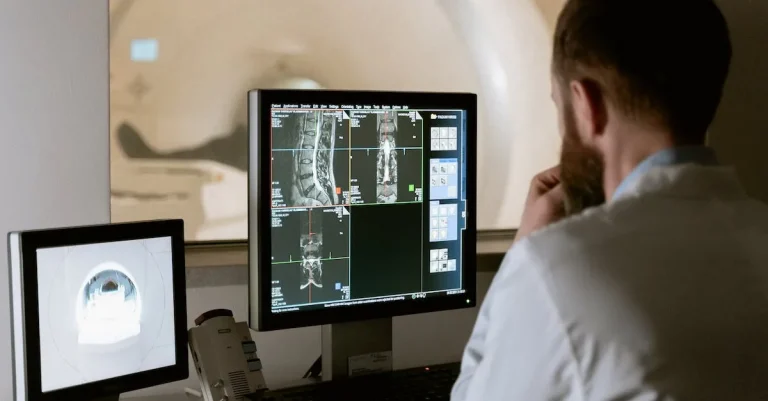
How To Study For Ap Computer Science Principles: The Ultimate Guide
Are you taking AP Computer Science Principles this year and wondering how to prepare? This course covers a wide range of critical computing topics and can be challenging for many students. With the right study plan and tools, you can build your knowledge and confidence to ace the AP CSP exam. If you’re short on…

Pure Science Vs Applied Science: A Comprehensive Comparison
Science plays a vital role in society, but not all science is created equal. Understanding the difference between pure and applied science is key. In short, pure science seeks knowledge for its own sake, while applied science uses knowledge to solve real-world problems. But there’s more nuance than that simple definition. In this comprehensive guide,…

Top Entry Level Jobs For Political Science Majors
For political science majors, identifying promising career paths after graduation can be challenging. While a political science degree builds valuable skills, the route to jobs directly within government and politics often requires years of experience. Fortunately, political science grads are highly employable in a wide range of entry level roles across various fields. This article…

Is Political Science A Liberal Arts Major? Examining Its Curriculum And Goals
The liberal arts encourage broad intellectual study rather than professional or technical skills. Given political science examines governments, systems, and political behavior, does it qualify as a liberal arts major? Let’s explore the curriculum, learning objectives, and historical roots of the discipline. If you’re short on time, here’s a quick answer: Yes, political science is…

What Science Courses Are Taught In 9Th Grade? A Comprehensive Overview
Starting high school is an exciting new chapter! As a 9th grader, you’ll begin building the science knowledge needed for future STEM courses and college majors. If you’re short on time, here’s a quick answer: Most 9th graders take a basic physical science course covering physics, chemistry, and space science concepts. Biology is sometimes offered…

What Science Courses Do 11Th Graders Take? A Detailed Look At The Science Curriculum
As a high school junior, you’re starting to think about college and potential careers. Nailing down your science curriculum and classes is essential during 11th grade. The sciences you take now can pave the path to your dream school and degree program down the road. If you’re short on time, here’s a quick answer to…
Studying for a part-time PhD: the challenges and the benefits
A part-time phd yes, it can be done and it can be incredibly rewarding writes, arthur krebbers.

Arthur Krebbers
I’ve experienced many unexpected hurdles while doing my PhD part-time and I’m sure that you will too. It is often difficult to keep your spirits high while doing a part-time PhD but the reward is substantial.
It is also helpful to hear about other people's challenges before you embark on your own journey.
One of my biggest challenges was finding a PhD supervisor. I had contacted a professor at a well-established London business school. She seemed supportive and agreed to meet. The conversation flowed well – until I mentioned the “P-word”. “Seriously, part-time?” she said, surprised. “Look, what you are looking to do is simply impossible. I tried to oversee a part-time PhD degree, with a brilliant student. It all began very well, but after a few months they just couldn’t keep up. Too much pressure from their work.” I’d hit my first dead end.
Fortunately, after persistent searching I found an ideal match. All in all, this took about two months. I cast my net wide, reviewing the full faculty of all the top 20 European finance schools. My goal being to find those that were 1) interested in my field of study (the European debt markets) and 2) open to part-time PhD degrees. Arriving at a shortlist of supervisors, I emailed and spoke to potential supervisors until I had made a final decision. Supervisor, check!
What is a PhD? Advice for PhD students
My next hurdle was in my place of work. I had heard of managers who wouldn’t consider a degree valuable if it wasn’t chartered. And other old-school types who, on hearing about an employee’s desire to “learn more”, simply dish out extra work assignments for them. They seem to live by the attitude that they don’t need any doctors in their workplace.
I had to therefore sow the seeds carefully. My sales pitch was full of corporate-speak, linking my degree to my division’s strategic objectives and the competitive international landscape. Did you know, for instance, that two-thirds of German CEOs have a PhD? Last time I checked, their economy is doing pretty well.
With employer support in the bag, I was ready to start juggling a research degree with a professional career. I became a compulsive planner; the PhD felt like a constant guilty conscience and I always felt like I could be studying more. The bulk of my research was done on Saturdays, which I occasionally topped up during the evenings, Sundays or dedicated holidays.
My work chipped in too, granting me two weeks of research leave a year – as part of a tailor-made support agreement that I had negotiated with my managers. They became very supportive of my endeavour, with the understandable condition that my job remained my priority. Banker first, researcher second.
Despite my limited free time, I realised that moderation was important and tried to pace myself. Long bouts of study would leave me insufficiently energised for the work week or put excessive pressure on my social life.
I wasn't in a rush. Being a part-timer, I did not have the same money stresses as my full-time peers. Living expenses were paid for through the day job and tuition fees were covered by my employer. I intended to enjoy both the process and the outcome. “What is a few months delay in a lifetime anyway?”
With corporate support and sponsorship in the bag, I was ready to be initiated into the academic community. This did not happen overnight. I only had one foot in the faculty, while using the other to run the rat race. The secluded professorial life seemed idyllic, spending days researching and working. However, when I heard esteemed lecturers conferring about the “quickest ways to get to British Airways Platinum status” or the “most lucrative visiting scholar jobs” I grew disheartened.
Realising that academics were also human was an important step for me. My interaction had to go beyond just talking about my thesis. A pint and a chat about the Premier League did wonders for my research collaboration. This interpersonal approach helped to solidify my academic relationships, both with my supervisors and other researchers.
And of course you won’t just be speaking to academics day in and day out. You’ll still have to make time for socialising with your family and friends, and often they may not quite understand how a part-time PhD works.
For example, asking “what will the research be about?” can be like asking a new parent “what will your child be like when he is five years old?” The doctoral process is highly iterative – it involves constant rewriting and refocusing.
Or wanting to know “when will you be done?”. This is not too different from asking an entrepreneur “when will you raise £1 million?” It depends on many factors. Not least the opinion of the supervisor, being your gatekeeper to that gold-plated doctoral certificate.
And, crucially, it also depends on your ability to be able to overcome all these hurdles and dedicate yourself to your research.
Read more: The romance versus the reality of a PhD
You may also like

.css-185owts{overflow:hidden;max-height:54px;text-indent:0px;} 8 habits to help you get through your PhD
Shabana Khan

Pursuing a PhD in neuroscience
Luis Humberto Eudave Ramos

PhD diary: Where do I begin?
Charlie Pullen
Register free and enjoy extra benefits

10 Best Part Time PhD Programs for 2024
Here we’ll explore part-time PhD programs, compare schools, and see what earning your doctorate could do for you.

If you’d like to earn your doctoral degree but don’t really have much time to spare, you might want to consider enrolling in one of the many available part-time PhD programs.
Editorial Listing ShortCode:
A part-time PhD program requires less of a time commitment, and there are both online and on-campus options.
Types of Part Time PhD Programs
The following are ten of the most popular part-time PhD programs people are enrolling in right now. Click on one to jump to that part of the page.
Business Administration
Healthcare administration, nurse practitioner (rn required), public administration, public health.
PhD graduates in these fields often enjoy very rewarding careers as professors, researchers, or industry experts.

If you’re looking for part time graduate school programs in business, taking courses toward your PhD in Business Administration may be an excellent choice. In addition to being the gold standard of business degrees in America, this degree is often recognized globally as the highest possible business administration degree.
Some universities also offer the option to select an area of concentration in a part time PhD program. For example, you could opt to get your online PhD in Accounting , or a similar field of business, like marketing, human resources, or project management.
Depending on whether you take this degree online or at an on-campus university, your curriculum may be a little different, but the basic admissions requirements and courses will likely be quite similar whichever you choose.
For example, you’ll likely need, at minimum, a bachelor’s degree in business administration, and a master’s degree in this field or another business-related field is usually preferred.
Some programs also have specific GMAT or GRE score requirements as well, though a growing number of universities are waiving this requirement.
A part time doctoral program in Business administration usually has some lecture courses and written coursework. Classes are mostly comprised of upper-level business classes in accounting, human resources management, project management, leadership, business innovations, and strategy.
Your primary focus, though, will probably be on independent research toward your final dissertation. This, along with a final exam, is usually the last step before earning a PhD. After receiving your PhD, you could potentially become a professor of business, a consultant for private companies or the government, or even a CEO or president of a company.

If you have an empathetic nature, a curious mind, a good listening ear, and the desire to genuinely help people, you might pursue a PhD in Counseling. PhD courses in the counseling field have been specifically tailored to do two things:
- Help students obtain the skills needed to become counselors in practically any environment, including K-12 schools, institutions of higher learning, private practices, prisons, mental hospitals, and more.
- Help students obtain the skills and knowledge needed to teach counseling skills to others as professors of counseling at institutes of higher learning.
The course curriculum for a counseling program is typically designed to educate students in a holistic, entire body approach to treating patients. Specific courses usually include higher-level classes in psychology, as well as counseling theories and techniques.
Other courses may cover holistic health and wellness, psychological techniques, and research. A heavy focus is often put on understanding patients of all races, backgrounds, genders, sexualities, and cultures.
In addition to lectures and seminars, you’ll probably be required to complete a lot of coursework and research.
If your ultimate goal with your PhD is to teach psychology at the post-secondary level, you may even be required to design and teach your own curriculum as part of a hands-on internship experience.
Your original dissertation will likely be your final step toward earning this PhD, after you which you could potentially teach or continue on in counseling.

If you’re considering a doctoral program in the education field, there are three different paths you can take. There’s the PhD path, which we’ll discuss here, and then there is the D.Ed. path and the Ed.D path, which are the Doctor of Education and Doctor in Education, respectively.
Earning a PhD in Education literally means you’ve received a Doctor of Philosophy in Education. (All PhDs are Doctor of Philosophy degrees. Only the specific field is different. This is why so much of their coursework focuses on research.)
Deciding whether or not a PhD is the right choice for you depends on what you want to do with it after you earn it. If you want to teach at the post-secondary level or work in educational research, then a PhD may be perfect for you.
The typical course format is a mixture of seminars, lectures, and coursework. As with practically any other PhD, your primary focus will likely be on independent research toward your dissertation, which should be a completely unique project of your choice relating to the field of education.
Your final project will probably consist of this dissertation presented before a panel of professionals in the field. You’ll likely be asked to deliver it and then defend it.
Some programs may also require you to pass a final exit exam. After you’ve earned your degree, you could potentially use it to become an educational researcher, professor of education, school administrator, superintendent, or other board of education member.

If you have a mind for numbers, money, and budgeting or work on the books and assets side of a company, a doctoral degree in finance may help further your career.
Online coursework in a finance PhD program typically focuses most heavily on a wide variety of financial and budgetary classes. Some of these include:
- Global Marketing
- The Behavior of Finance Locally, Nationally, and Globally
- Decision-making of Firms and Other Financial Institutions
- Assets Pricing
- Assets Valuation
For many, this is considered one of the best possible PhD programs to take online, and if you already have a background in finance, it could potentially be one of the shortest doctoral programs online for you. It also works well as an on-campus program.
In a typical finance program, most work is done through lectures, seminars, and hands-on experience, first developing and then rigorously testing theoretical models.
Upon earning your PhD in Finance, you should be able to pursue many different careers. You might become a compensation and/or benefits manager, chief financial officer, director of securities or commodities, financial manager, or budget analyst.
You may also be eligible for promotions of the highest level in budgeting, acquisitions, and sales. A PhD in Finance can help prepare you for a career as a high-level sales agent in almost any field.
As with most PhDs, what this degree is really designed to do is help you obtain the skills to teach a program in your subject of expertise, in this case, finance. For that reason, after earning your PhD, you may consider becoming a professor.

If you’re planning to get your PhD in Healthcare Administration, there’s a strong possibility that you’re already working somewhere in the healthcare field, possibly even in healthcare administration.
This is because most PhD in Healthcare Administration programs are only open to those who already have master’s degrees in this same field or one that’s closely related to it.
There are even some programs that require you to already be working in healthcare administration before you can be accepted into their program.
If none of these things apply to you, this might not be the degree for you. If you do have your heart set on it anyway, then you’re probably going to have to put in quite a bit of extra work first.
In addition to the desire to help and heal people, possessing a good head for business, a love of research, and excellent people skills are beneficial for pursuing this degree. Being comfortable with economics, finance, accounting, and grant-writing is helpful as well.
This degree is usually sought by those who want to become professors of the subject at a university or those who want to move into upper-level management and leadership roles within large healthcare organizations.
Some of the most commonly shared classes between different healthcare administration PhD programs are related to research, communication, and organizational strategies. There are also seminars on healthcare reform and legislation, as well as the role of politics in healthcare.

If your goal is to earn your PhD in Management, you have so many options. Other than doctoral programs in business and business administration, programs in management are some of the most numerous programs out there right now.
You likely have plenty of choices, whether you want to go the online or on-campus route.
Another great thing about a PhD degree program for management is that it has such wide-reaching possibilities. Whether you work in retail, factory work, or engineering, chances are you have a management team.
That’s because every field needs managers and supervisors. Therefore, a PhD in Management can appeal to many different types of people.
Possessing any of the following traits can help you in this path:
- Hardworking
- Research-minded
- Good communicator
- Multitasker
- Fair leader
Courses in management are usually pretty fast-paced, and the subject matter is just as varied as the types of people who pursue the degree. Courses commonly incorporate classes on research skills, human resources management, social sciences, economics, strategic planning, and networking.
You’ll likely be required to research, put together, deliver, and defend a unique dissertation before you can officially earn your degree. Most programs require an exam, as well.
Once you’ve received your PhD in Management, though, potential job paths include management consultant, professor, CEO, entrepreneur, and more in a variety of different fields.

If you’re a nurse practitioner looking to become a better and higher-paid nurse, then you might not want to pursue your PhD in Nursing. Instead, you may want to work toward your Doctor of Nursing Practice (DNP).
However, if you’re a nurse practitioner who wants to transition into pure research, nursing theory, or the education and training of future nurses and nurse practitioners, a PhD may be the right choice for your needs.
Although a PhD in Nursing usually takes fewer years to earn than a DNP and requires almost no clinical work—unlike the DNP—you’ll likely be required to do massive amounts of research into the field of nursing, nursing theory, and nursing education processes.
The goal of most PhD in Nursing programs, in addition to teaching students what they need to know to educate future nurses, is to prepare students for careers in clinical research and education strategy. The aim is for them to be able to improve upon the research processes and education methods to make the training of future nurses more innovative and all-encompassing.
Less often, graduates of this program go on to work in advanced clinical practice or even healthcare administration, but this isn’t the most common career path for people receiving this particular degree. Many of the courses do focus on leadership and best management practices for those who do want to take this route, though.

If your goal is to pursue a PhD in Public Administration, you have a wide variety of programs from which you can choose. Because regulations governing this type of degree program are looser than some other degree programs, each public administration program is structured differently.
However, despite their differences, there are a few things that almost every public administration program, whether online or on-campus, has in common. The admissions requirements for the programs are one example.
While not all programs require you to have a master’s degree before enrolling, most prefer it. For those that don’t require it, you’ll probably still be required to have a bachelor’s degree in either public policy or public administration.
When it comes to the actual curriculum, though, the programs all seem to differ slightly. The classes taught in one program are often different from the classes taught in another program at a different university.
In almost every public administration program you are likely to take courses on public vs. private budgeting, advanced communications, and policymaking. The electives and other classes from program to program can vary, though.
However, despite the courses, the end goals of these programs are all usually very similar: They typically aim to educate doctoral students on the best practices governing the use and overseeing of public assets.
With a PhD in Public Administration, you could potentially find a career as a purchasing agent, budget analyst, human resources manager, auditor, financial manager, or something similar.

Working in public health requires certain specific qualities. For instance, being able to keep calm under pressure is important. Being intelligent, analytical, and comfortable with the research and testing of potentially deadly viruses and diseases are also beneficial traits.
Public health isn’t entirely about diseases and outbreaks, though, no matter how it may seem.
The number one goal of most public health PhD programs is to educate students in all aspects of public health and how to present information and findings in a way the public can easily understand.
Another goal is to give doctoral students the knowledge and skills needed to help improve the overall public health of American citizens.
This includes instructing students on research skills and theory, particularly how to use research and the scientific method to improve upon methods already being used in the public health sector.
It’s also imperative to be able to present crisis-level information to the public in a way that keeps people from panicking.
The most common concentrations for a public health degree program are the following:
- Biostatistics
- Environmental Health
- Health Management and Policies
- Social Sciences
- Chronic Diseases
- The Epidemiology of Microbial Diseases
After graduation, jobs with the CDC and federal, state, and local governments are common. Other potential jobs include environmental scientist, biostatistician, epidemiologist, and safety engineer.

Part-time psychology PhD programs are also very popular choices for PhD seekers. This means there are plenty of online and on-campus programs available from which you can choose.
Although it can often be taken as an on-campus program very easily with excellent results, most people tend to take it online for the simple fact that it’s more convenient. This means there are many accredited online options for psychology.
Although a PhD in Psychology is typically meant for those who want to move out of practicing psychology and into the realms of psychological research and secondary education, some people do take it to become better, higher-paid psychologists. If you’re one of these people, being empathetic, curious, and non-judgmental are three helpful qualities to have to succeed in this career.
If you’re pursuing this degree in order to teach or move into pure research, an analytical mind, enjoyment of research, and a good grasp of the scientific method and process will serve you well. This degree depends heavily on independent research.
You’ll likely have coursework, lectures, and case studies, but most of your time will probably be spent researching your dissertation.
If you’re successful in earning your PhD in Psychology, you may continue to work in the field of psychology as a counselor, psychologist, or something similar, but that isn’t all you might do. You may also teach or work as a psychological researcher.
In addition to part-time PhD in Psychology programs, some universities offer part time PsyD programs . A PsyD is a Doctor of Psychology. This degree may be a good option for practitioners more interested in providing psychological services to clients.
Accreditation for Online Part Time PhD Programs

The specific accreditation for your online program will depend on the degree field. Different fields have different boards certifying them as accredited programs. You should be able to check any program’s accreditation on the school’s website.
Regional accreditation is the most accepted and recognized by employers and other schools, should you want to transfer. National accreditation is acceptable as well, but it only accredits your program within a specific region of the U.S. Regional accreditation is typically recognized throughout the entire U.S., no matter where you relocate.
Schools without accreditation may not be accepted at all, so it is important to check your program’s accreditation status.
Financial Aid for PhD Part Time Students

There are a few main types of financial aid to pursue as a PhD student: loans, grants and fellowships, and assistantships.
Loans are available to both online and on-campus students. Loans have to be repaid, so it is important to use them responsibly and only take out what you need. The best place to start looking for loans is usually the federal government. You can apply for loans by filling out the Free Application for Federal Student Aid, or FAFSA .
Fellowships and grants are similar to scholarships and are also available to both online and on-campus students. They’re usually given out to students who need financial aid who have completed applications proving they’re also deserving of the grants.
Many of these may be listed on your school’s specific website. Others can be found on Fastweb and other similar sites.
Finally, assistantships are available only to on-campus students. These are similar to work-study programs. You may work as either a teacher’s assistant, research assistant, or something similar. Working in the lab or as a teacher to undergrads are both typical assistantship duties.

Can You Do PhD Part Time?
Yes, many students work on their PhD part-time. When asking how long does it take to get a doctorate degree , it’s important to keep in mind that there are several programs, both online and on-campus, that allow doctoral students to take part-time PhD classes.
Is PhD Full Time or Part Time?
Depending on your budget and available free time, you can take either full-time or part-time PhD classes. The only difference is that it will take you longer to graduate if you only take part-time classes.
Is a PhD Worth It?

Yes, a PhD is worth it for many professionals. Earning your PhD can help open up new doors of opportunity and advancement in your current field. If you’ve ever considered teaching in your career field, a PhD can also help give you that opportunity.
You can do some research to find an online PhD program or campus-based program that’s right for you.
You now have the option to take PhD classes either online or on campus, and some programs are more affordable than they’ve ever been. Now may be the time for you to take the next step toward an advanced degree.

Clearing Universities & Courses
Clearing advice.
Recommended Clearing Universities
Popular Course Categories
Course search & discover.
Start the search for your uni. Filter from hundreds of universities based on your preferences.
Search by Type
Search by region.
Recommended Universities

Ravensbourne University London
London (Greater) · 88% Recommended
.jpg)
The University of Law
London (Greater) · 92% Recommended

City, University of London
Search open days.
What's new at Uni Compare

University of Sunderland
Unlock your potential at one of the world’s best young universities (THE, 2023).

Staffordshire University
Apply to the uni ranked 2nd for quality teaching (THE, 23).
Ranking Categories
Regional rankings.
More Rankings
Top 100 Universities
Taken from 65,000+ data points from students attending university to help future generations
About our Rankings
Discover university rankings devised from data collected from current students.
Guide Categories
Advice categories, recommended articles, popular statement examples, statement advice.

What to include in a Personal Statement

Personal Statement Tips
What is a part-time phd.
With PhDs being offered by universities, more and more have started to offer part-time PhDs as well!

A part-time PhD might be the answer to some of your worries related to committing to long term postgraduate study. Now you have the chance to study a postgraduate degree and work as well!

What is a PhD?
A PhD is a postgraduate doctoral degree, known as a Doctor of Philosophy. Generally, a PhD involves an extensive research project in a specific subject or field. At the end, you will produce a “thesis” on your findings.
What is the difference between a part-time PhD and a full-time PhD?
The difference is the time given to both. As the name suggests, a part-time PhD is a PhD that is studied only part-time, while a full-time PhD is studied in the usual manner.
A part-time PhD typically takes anywhere between five and seven years. Full-time PhDs are, by no means, short affairs, but typically tend to take around three or four years.
How long does a part-time PhD take?
A part-time PhD typically takes five to eight years, but this time period depends on how long the university offers you and how much work you put in. You might have more time than you initially thought and finish it sooner, or your work and life balance may get in the way and it takes longer.
Typically, a full-time PhD is three to four years. However, a thesis deadline can actually be extended for as long as four years.

How many hours a week is a part-time PhD?
There is no set time to how long studying a PhD part-time takes, as it’s down to the hours you put in yourself. If you have a goal of completing a doctorate in five to six years, you’ll find you’ll need to knuckle down in the library a little more often.
Finding part-time PhD courses
It shouldn’t be too hard to find a PhD course.If a university offers a postgraduate course, there’s a fairly high chance that they will offer PhD courses. If you can’t see it listed on the course profile, get in contact with the university - they’ll be happy to help!
You should first decide what area of research you’d like to conduct. After that, research, research, research! Find out whether it has been done before and if it\’s possible to complete it in the time frame you want to. Once you’ve understood this, you can focus on which universities are best suited to you and your project.

Why should I do a part-time PhD?
Whether you choose a part-time PhD will likely depend on your circumstances. There are a couple of key reasons many decide on part-time study.
The cost of study
While the cost of your PhD will be the same as a full-time, many prefer that the costs will be spread out across a longer period of time at a smaller cost.
As you’ll also be studying at your university for less time a week, the costs of travel to and from university will be less than if you were full-time.

Flexibility
It's far easier to adapt your life around your PhD if it is studied part-time. If your life is a bit hectic, then a part-time PhD gives you the chance to attend to other matters in your life without the fear of not completing your PhD.
If your situation changes, there is always the opportunity to change to a full-time study.
The reason you choose part-time is down to you. You may find that a full-time PhD suits you better than a part-time PhD course, so consider your situation before you make your choice.
Is there part-time PhD funding?
Yes, there are PhD funding options available. PhD loans can be found through businesses willing to sponsor your work, charities and trusts who may benefit from your research, nationwide grants , or through the government.
Student finance may also be available to you. Essentially, if you won’t receive a studentship , then Student Finance may step in, but it’s unlikely that it will cover the full cost of your PhD. Loans can be available for up to £28,000 depending on circumstances.
postgraduate Universities
Postgraduate uni's.

Northumbria Uni
244 courses

131 courses
Want to learn more about a university?
Get your questions answered by sending them an enquiry now.
Thank you for visiting nature.com. You are using a browser version with limited support for CSS. To obtain the best experience, we recommend you use a more up to date browser (or turn off compatibility mode in Internet Explorer). In the meantime, to ensure continued support, we are displaying the site without styles and JavaScript.
- View all journals
- Explore content
- About the journal
- Publish with us
- Sign up for alerts
- CAREER COLUMN
- 13 January 2021
My 11 part-time jobs made me a better PhD student
- Cassie Sims 0
Cassie Sims is a postdoc at the Max Planck Center for Next Generation Insect Chemical Ecology and Lund University in Sweden.
You can also search for this author in PubMed Google Scholar
I have had 11 part-time jobs between my final year of school and completing my PhD programme. These varied in scope, pay, fun and responsibility, but most fell into in hospitality, customer service or tutoring. I have waitressed in restaurants and cafes, supervised a student bar, sold smoked meats and cheeses and tutored younger students.
Access options
Access Nature and 54 other Nature Portfolio journals
Get Nature+, our best-value online-access subscription
24,99 € / 30 days
cancel any time
Subscribe to this journal
Receive 51 print issues and online access
185,98 € per year
only 3,65 € per issue
Rent or buy this article
Prices vary by article type
Prices may be subject to local taxes which are calculated during checkout
doi: https://doi.org/10.1038/d41586-021-00089-w
This is an article from the Nature Careers Community, a place for Nature readers to share their professional experiences and advice. Guest posts are encouraged .
Related Articles

Africa’s postdoc workforce is on the rise — but at what cost?
Career Feature 02 APR 24

Research assessments are still not fit for purpose — here’s how to change things
World View 02 APR 24

How scientists are making the most of Reddit
Career Feature 01 APR 24
How can we make PhD training fit for the modern world? Broaden its philosophical foundations
Correspondence 02 APR 24
Allow researchers with caring responsibilities ‘promotion pauses’ to make research more equitable

Can non-profits beat antibiotic resistance and soaring drug costs?
News Feature 28 FEB 24

Optimally generate policy-based evidence before scaling
Perspective 14 FEB 24

Scientists question cancer tests that use microscopic nematode worms
News 20 DEC 23
Postdoctoral Associate- Cell Biology
Houston, Texas (US)
Baylor College of Medicine (BCM)
Head of ClinicalTrials.gov
National Institutes of Health (NIH) National Library of Medicine (NLM) National Center for Biotechnology Information (NCBI) Information Engineering...
Washington D.C. (US)
National Library of Medicine, National Center for Biotechnology Information
POSTDOCTORAL FELLOWSHIP IN SYSTEMS BIOLOGY: PRECISION VACCINE PROGRAM (PVP) - BOSTON CHILDREN'
The Data Management and Analysis Core (DMAC) within the Precision Vaccine Program (PVP) at Boston Children’s Hospital and Harvard Medical School (H...
Boston, Massachusetts
Boston Children's Hospital - Department of Pediatrics
2024 Recruitment notice Shenzhen Institute of Synthetic Biology: Shenzhen, China
The wide-ranging expertise drawing from technical, engineering or science professions...
Shenzhen,China
Shenzhen Institute of Synthetic Biology
Global Talent Recruitment (Scientist Positions)
Global Talent Gathering for Innovation, Changping Laboratory Recruiting Overseas High-Level Talents.
Beijing, China
Changping Laboratory
Sign up for the Nature Briefing newsletter — what matters in science, free to your inbox daily.
Quick links
- Explore articles by subject
- Guide to authors
- Editorial policies

25,000+ students realised their study abroad dream with us. Take the first step today
Here’s your new year gift, one app for all your, study abroad needs, start your journey, track your progress, grow with the community and so much more.

Verification Code
An OTP has been sent to your registered mobile no. Please verify

Thanks for your comment !
Our team will review it before it's shown to our readers.

Studying for a Part-time PhD: The Challenges and Benefits
- Updated on
- Dec 2, 2022

Are you a Masters student or a researcher who is considering doing a PhD? If so, you would know that pursuing a doctoral program is a long-haul commitment for any student. The duration may vary by subject. A PhD in a STEM subject may take three years. On the other hand, if a PhD topic requires data collection over an extended period of time, the process can take longer.
In the Social Sciences fieldwork for qualitative data collection can take 2-3 years and so the PhD can take 5 years or a bit longer. The duration of the PhD program also varies by region. A PhD in the United States may require year-long coursework (to study and pass examinations in some specified courses). Your focused dissertation work can begin only after you pass those examinations. This is how a typical PhD program runs.
This Blog Includes:
What does a part-time phd mean, what are the benefits of doing a part-time phd, challenges faced in pursuing a part-time phd, career advice from a phd mentor.
A part-time PhD is basically about flexibility. This means that :
- The rules about timelines for submission do not apply to you.
- Time for completion may be open-ended, sometimes as long as 8 years.
- The fees may be lower than for the full-time programme.
- Your presence may not be required.
- You may be able to work remotely –in case you have a job or family responsibilities in a different city.
Many universities, regardless of the subject that you are pursuing, will offer you the option of doing a part-time PhD spread over a few years. However, if you are on a funded scholarship , or have a research fellowship or other sources of funding, this may not be permissible. You may be required to complete your dissertation within a stipulated period of time.
Must Read: Importance of publications during PhD
- If you are a young professional and holding a job, a part-time PhD would be a good option because it would give you flexibility without disrupting your professional work.
- A part-time PhD would enable a student to take up research projects and teaching assistantships alongside the study. This ensures additional income while you do your doctoral work.
- If you have family responsibilities and are not able to focus full-time on your research, then a part-time PhD offers potential.
- In case of financial constraints, the part-time PhD student will have to pay a lower fee annually, although it would extend for more years.
- Research has shown that when students take extended periods of time to finish their dissertations, many ‘drop out and do not complete their final dissertations .
- Working on the same topic for 6-8 years can result in losing focus and motivation which ends up in non-completion.
- Non-submission of the final dissertation means that the student is given the title ‘ABD’ (all but dissertation). Professionally this means that although you may have completed all other requirements, you will still be ABD and not get the title of a PhD The PhD is a key qualification required for academic and research-related positions.
- This is the reason why university fellowships have a time limit within which a student must complete and submit their dissertation and fulfil all other requirements for a PhD.
Also Read: Top Challenges Faced While Studying Abroad and How to Overcome Them
I have mentored many graduate students and PhD scholars during the years that I have taught at universities in India and in the United States. They have all confirmed that doing a PhD is hard work and needs a strong focus. My own personal journey in doing a PhD also confirmed that. I had to keep track of my own progress and create my own deadlines and targets so that every few months I could reach the next stage towards completion. In such a situation a part-time PhD did seem an attractive option. However, I chose a full-time programme to keep myself motivated and to get my degree as early as possible.
My advice is to all PhD scholars is to set a target to complete the PhD during the time permitted for a full-time PhD Choose the part-time option only if you have serious time constraints or other responsibilities or if you need to live in a different city from your university. In that case, set goals and milestones for yourself so that you don’t lose focus or motivation. For more questions on research skills, finding a topic for research or choosing a methodology, DM me!
We will be back next Friday with another amazing blog from Dr Maina Chawla Singh. Till then, if you have any questions or suggestions, just drop us a comment and we will get back to you.
Dr. Maina Chawla Singh
A scholar, internationally published author and Higher-education consultant, Maina Chawla Singh (PhD) has over 25 years of teaching experience at universities in India, United States and Israel. She has authored two academic books and several peer-reviewed journal articles. Her research spans multiple disciplines across Liberal Arts : Gender Studies, Colonialism, History of Medicine, Migration, Identity Studies, Indian Diaspora, Jewish Anthropology and Israel Studies. Dr Singh has been an invited speaker at prestigious institutions including at Yale, Cornell, Oxford, Georgetown, University of Penn, Emory University, Ann Arbor, Michigan, NYU, Tel Aviv University (Israel) and Sciences Po (France). Having taught online university courses at American University since 2013, Dr Singh is highly skilled in Digital Pedagogies, Syllabus Design and Online teaching. She has been a peer-reviewer for several international journals and is certified in academic manuscript editing (New York university, USA). Dr Singh has lived in Russia, Israel, Japan, Ethiopia, France and the USA and has a deep comparative understanding of International Education. She is passionate about supporting student aspirations for Study Abroad. Dr Singh is an Academic Content Creator. As a freelance mentor Dr Singh offers customized career-advice to students, early- career professionals and researchers for Personal Brand-building ; Persuasive Communication, Academic Profile-building and Research Publication. Dr Singh speaks Hindi, English, Punjabi and Russian. She loves reading about Tech, Digital Marketing and Design-Thinking.
Leave a Reply Cancel reply
Save my name, email, and website in this browser for the next time I comment.
Contact no. *

Leaving already?
8 Universities with higher ROI than IITs and IIMs
Grab this one-time opportunity to download this ebook
Connect With Us
25,000+ students realised their study abroad dream with us. take the first step today..

Resend OTP in

Need help with?
Study abroad.
UK, Canada, US & More
IELTS, GRE, GMAT & More
Scholarship, Loans & Forex
Country Preference
New Zealand
Which English test are you planning to take?
Which academic test are you planning to take.
Not Sure yet
When are you planning to take the exam?
Already booked my exam slot
Within 2 Months
Want to learn about the test
Which Degree do you wish to pursue?
When do you want to start studying abroad.
September 2024
January 2025
What is your budget to study abroad?

How would you describe this article ?
Please rate this article
We would like to hear more.

The secret life of part-time PhD students
- No Comments
In this post Yasmin and Molly discuss their experiences of doing a part-time PhD. They talk about what this includes as well as giving some of their top tips for those considering going down this route.

Who we are:
Yasmin: I am a Research Assistant running the Children of TEDS ( CoTEDS ) project . I manage study design, participant recruitment, data collection and data management. I also supervise undergraduate placement students who help a lot with these jobs. This has given me time over the past four years to also complete a part-time PhD. My thesis is focussed on understanding associations between parent and offspring anxiety and depression.
Molly: I am also a Research Assistant, running the Genetic Links to Anxiety and Depression (GLAD) Study, with similar responsibilities to Yasmin. I work with a team of other staff members and placement students to ensure that the study is running smoothly and implement any changes in study design or recruitment strategy. I have one day a week set aside to work on my PhD and switch over to writing and working with the GLAD data. My research is investigating phenotyping methods for anxiety and depression and the symptom presentation of these disorders.
How does a part-time PhD work?
In the UK, part-time students typically have at least six years to complete their PhD. It is possible to do it in less time if you have the right support. The minimum time allowance for part-time students at King’s is 4 years.
You may have set days of the week to do your research, or you may have to slot it in throughout the week alongside other jobs. Whichever way you do it, you must be disciplined in carving out time to focus on each job. You need supportive supervisors and line managers who understand your workload.
Multitasking comes with the territory as a part-time PhD student, and you continuously have to plan ahead. By the end, if all else fails, you can compete for a place in the Guinness World Book of Records for highest number of weekly schedules and to-do lists ever written (see photo for a typical desk scene).
Three advantages that we have enjoyed as part-time students*:
*Disclaimer – we both have Research Assistant jobs alongside our PhDs, so our experiences are specific to this. There are lots of other reasons why you might do a PhD part-time, for example if you are raising a family or have other commitments outside of academia
1. Getting experience with a wide range of tasks
Part-time PhD students may also be working, either full- or part-time. This gives you the opportunity to get hands-on experience with a wider variety of tasks and projects, and it can be a welcome distraction from PhD work.
2. Employability
Following on from advantage 1, your experience is a great CV booster. You will develop a broad range of skills and experience. If you’re an RA and PhD student, then you’ll have experience working closely with both research teams and academics at all stages of research. This is not only a bonus for your job applications, but can also give you more opportunities to network and build relationships with other academics that can help you with your career long term.
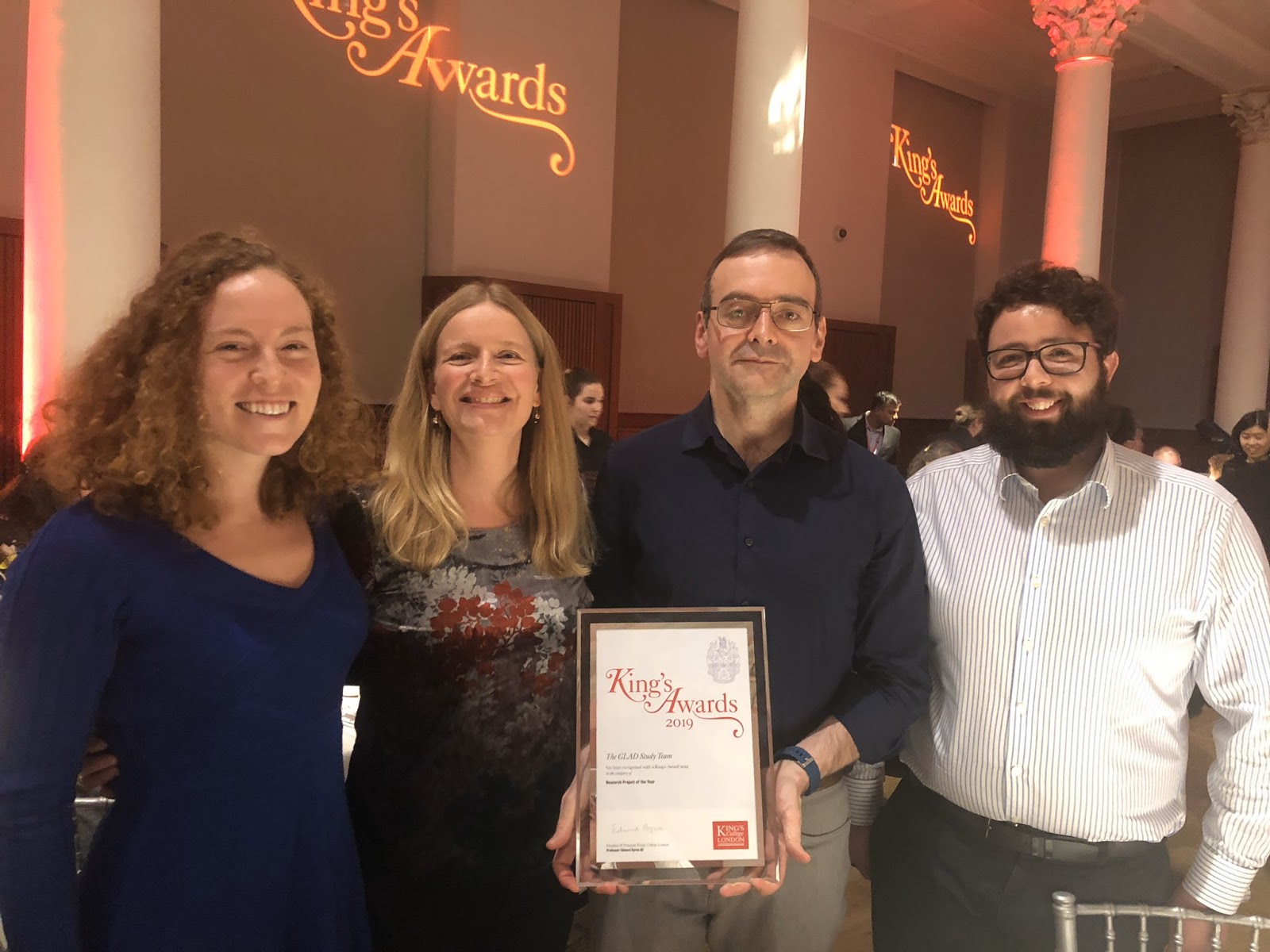
3. Financial stability
It’s no secret that a PhD stipend can be difficult to live on, particularly in London. It’s not all about the money, but having a salary helps negate some of the financial stress (and general stress, when it funds a nice holiday!).
“You will develop a broad range of skills and experience.”
Three challenges that we have faced as part-time students:
1. Time management
It can be difficult having so many jobs competing for your attention during a time of intense training and learning. Opportunities to procrastinate are vast, as you can always switch to a different job when one gets too difficult. It can be hard to save days each week to just do one job, but changing location can help to switch focus (Molly works from home on Fridays to create separation; working in the library can help as well). Set short and long-term goals to keep track of tasks and make sure that your PhD work progresses. Agree deadlines with your supervisor to create accountability for yourself. Remember that research is unpredictable and projects usually take longer than expected!
2. Self-motivation
This applies to all PhD students, but can be exacerbated with part-time PhD work. You may work more independently from other students (physically in terms of your desk, and temporally in terms of your timeframe). We have enjoyed having colleagues who aren’t PhD students, to provide a welcome break and change of perspective and pace! It is important to go to talks and events that inspire you and remind you of all the reasons why you chose to do both your job and PhD in the first place.
3. Not being able to do everything
As part-time students we can’t always do the things that full-time PhD students fill their time with, such as teaching, conference planning, research placements and reviewing papers. We sometimes miss events, training and seminars during working hours and don’t always have funding for courses or travel.
“It is important to go to talks and events that inspire you.”
Top tips for anyone starting a part-time PhD
1. Find ways to attend conferences, courses and training
Make sure you identify the key training needs that you require and keep an eye out for funding opportunities if you need them. This could be by identifying travel awards or funding pots, or negotiating with your supervisors for support. Keep in mind that conferences can be as important as training, as they allow you to network and get inspired by/learn from other researchers in your field. Also keep an eye out for events, training, career services, etc that are offered by your university and take advantage (lots of them are free, like these for King’s College London students).
2. Don’t compare your research output to other students
Every PhD is different and everyone is gaining their own unique set of skills and experiences. Keep in mind that your PhD is only the start of your career, not the end. If you want to learn a new skill but don’t have time during your PhD, then you can set that as a goal during a post-doc position or the next stage in your career.
3. Remember that you’re a student too, and look for what support is available to you
Ask for help. You may be able to work it out by yourself, but it can be faster to speak to someone else, even just to ask for advice on papers to read or resources to access. Building relationships with other PhD students or early career researchers is particularly helpful to build a support network and share knowledge of techniques or ideas. If you aren’t sure where to start, your supervisors can also help by introducing you to their other students.

Previous Post Genetic prediction of educational attainment: the important role of parental behaviour
Next post staying healthy during covid-19.
Author Yasmin Ahmadzadeh
Comments are closed.
Careers within research
Work-life balance
Working from home
Book & show reviews
Mental health & wellbeing
Genetics & mental health
- Anti-racism
- Learning From Doing
- Life Scientific
- Mythbusters
- Research Matters
- The Wider World
- Authors & contributors
Follow this blog
Social media.
© 2024 The EDIT Blog.
Recent Posts
- First International Conference
- PhD applications
- Visiting another lab as a PhD student: part 2
- Giving a longer talk
- Y for Youth Awards
Recent Comments
- A call for diversity in genetics research: Part 2 – The EDIT Blog on A call for diversity in genetics research: Part 1
- Reflecting on resilience: Part 2 – The EDIT Blog on Reflecting on resilience: Part 1
- Collaboration between academic and voluntary organisations: Part 2 – The EDIT Blog on Collaboration between academic and voluntary organisations: Part 1
- Zain-Ul-Abideen Ahmad on Self-Report Measures and the Replication Crisis
- Post Of The Week – Saturday 30th January, 2021 | DHSB/DHSG Psychology Research Digest on Measuring race, ethnicity and ancestry in research: time for new tools
- International edition
- Australia edition
- Europe edition

How to juggle a full-time job and a part-time PhD
My PhD and my business career are not connected and they are both demanding. But I’ve found there are benefits to my double life
I took a while to tell my colleagues that I was studying for a PhD in my spare time. I was concerned that they might question my ability to balance a full-time (and full-on) career with doctoral studies in a topic completely unrelated to the industry I work in.
But I began to realise that, although the topic I am exploring is not directly connected, the skills I am acquiring are hugely valuable. The process has given me new perspectives and added value in ways I had not expected.
My approach to innovation has evolved, for example, as I apply academic questioning and analysis to business problems. I have completely refined my prioritisation skills. And mentoring graduates and helping them to realise their potential has inspired me to solidify my own thinking about progression.
Studying part-time for a doctorate can be a lonely experience; I have met only a small number of people in the same position. What’s more, there isn’t a huge amount of advice on the topic, so here are lessons I have learned about managing it so far:
Choose a topic that you love
Your choice of subject has to be so appealing that you can keep yourself motivated for the duration of your studies, in the face of the stresses and strains of work. This project may take six years (or more), so it needs a topic that you can’t leave alone. I’ve come to realise that much of a PhD is just getting through it, proving to yourself that you can persist and keep going.
Find the right supervisor and the right programme
Before you begin, it’s important to spend a significant amount of time finding the right supervisor – someone who can appreciate and support your approach. They will need to understand your priorities and your study pattern, which is likely to involve short bursts of activity. Look for someone experienced and who can understand your end goals. You are CEO of your project, so choose your supervisory team well, just as you would do in business.
Set the ground rules
Agree the minimum face-to-face and remote contact required with your supervisor. Document a clear plan of work and activities to reassure people around you – your supervisor and your colleagues – that you are in control.
Take real holidays
Much of the leave I take from work is focused on catching up on studying, but a break away from everything helps to clear the mind and restore the balance between work, study, home, family and friends.
Accept support
Help is there if you look for it and are open to receive it. Once I started being more open about what I was doing, the support I received from my colleagues hugely increased.
Only do what you need to
Accept that you cannot do everything. If your studies are not intended to further your career, you don’t have to give papers, or participate in teaching unless you want to. You need to be clear about the reasons for pursuing your studies. If it is not for a career in academia, then why put yourself under that extra pressure?
Value yourself
Work out how your studies will make you different – value the unique perspective they will enable you to bring to your organisation. Being able to articulate the extra benefits that you bring to your role may be useful if you need leniency around working hours or have to ask for study leave. There are more options than ever before to study remotely or part-time. Pursuing something that you are really interested in can be intensely fulfilling and help you to move towards a rounded and holistic approach to life.
Join the higher education network for more comment, analysis and job opportunities, direct to your inbox. Follow us on Twitter @gdnhighered . And if you have an idea for a story, please read our guidelines and email your pitch to us at [email protected]
- University careers
- Universities
- Higher education
Comments (…)
Most viewed.

How long does it take to get a PhD part time? Complete a PhD on your own time.
During my time in academia, I know of a number of people who have decided to do their PhD part-time. It is completely possible to complete your PhD on a part-time basis it just takes a little bit longer. The time it takes depends on the fraction of full-time work you are willing to take on.
A part-time PhD can take anywhere from 5 to 20 years depending on the fraction that you are working. It is a great way to balance life with studies, but some extra considerations need to be made before deciding to complete your PhD part-time.
You may wish to complete a part-time PhD to balance your commitments outside your studies with your PhD. Some people also do a part-time PhD initially to ensure that they can manage the pressures and to test the waters.
Also, I know of people who have started a full-time PhD and have reduced it to part-time because they have found a job to financially support their studies.
Part-time PhD: How long does it take to get ?
A part-time PhD takes longer than a full-time PhD, however, the amount of time it will take to complete depends on the fraction of time they are working and their research goals.
Generally, a part-time PhD can take between three to ten years to complete.
Here are the average fractions of a part-time PhD and how long you can expect to spend in university.
It’s important to note that these ranges are very unprecise. The real length of a part-time PhD is dictated by the same elements as a full-time PhD which include:
- achievable research question within timeline
- PhD candidates ability to prioritise research
- students ability to remain persistent in spite of setbacks
- a whole amount of luck and hard work
- supervisors ability to supervise students
- supervisors urgency in returning drafts
- and so much more.
When you are unable to dedicate as much time to your PhD as a full-time student some of the elements above play a more important role than others.
Part-time PhD students must balance other commitments such as work or family life alongside their studies.
It also means that students may have to take fewer classes and make less progress each semester in order to maintain an acceptable level of academic performance.
As such, a part-time PhD may take significantly longer than its full-time equivalent but with hard work and dedication it can still be achieved in a reasonable timeframe.
If you want to know more about How long it takes to get a PhD check out my other article:
- How long does it take to get a PhD? Complete a PhD quickly
- How difficult is it to get a PhD? The real doctorate struggles.
The main differences between a part-time and full-time PhD
The main differences and difficulties that people experience between a part-time and full-time PhD include:
- keeping up momentum – having to stop and start more often with bigger gaps means that people struggle to keep up the momentum during their PhD.
- Access to supervisors – it can be difficult to find time to talk with your supervisor particularly if you are not in the office as often as others.
- Building up a network in the university – make sure that if you are doing your PhD part-time that you build up relationships with people that can help you including Administration staff and people who operate instruments for special equipment.
- Writing – finding time for writing is one of the hardest and most difficult things during a PhD. During a part-time PhD it can be harder to dedicate time to writing and reading. Place these in your diary first.
Ensuring that you keep up momentum throughout your part-time PhD will be one of the hardest things that you have to do.
A top tip is to write a list of where you have just finished and the actions you need to do to get started the very next day you are in. A lot of time can be wasted trying to work out where you left off the last time you were in the lab.
Trust me, you will not remember as much as you think you well.
What are a part-time PhD and a full-time PhD program?
A part-time PhD and a full-time PhD are both doctoral degrees, with the main difference being the amount of time invested in studying for them.
A full-time PhD student will focus solely on their studies, while a part-time PhD student would need to balance their studies with other commitments such as employment or family life.
Full-time PhDs typically take three to seven years to complete (depending on the country you are doing your PhD in), whereas part-time PhDs can take many more years.
Part-time students can study as little as one day each week, although this varies depending on the institution and field of study.
Part-Time PHDs can be beneficial for those who want to continue working while they study, but it can also be more difficult due to the extra demands on their time and resources.
I found that a lot of part-time PhD students were completing their PhD alongside their current job and their employers were very supportive of their PhD is because it was directly related to their jobs.
For example, I knew of a person doing a forensic PhD alongside his job as a forensic scientist.
How many hours a week is a part-time PhD to complete a PhD?
A part-time PhD is an option for those who want to complete a doctorate while still maintaining their other commitments.
Generally, part-time PhDs require around 20 hours per week, although this can vary depending on the program and what your supervisor and department are happy with.
While some students may choose to dedicate more time and finish earlier, most will take between four and six years of part-time study to complete their doctoral studies. Quite often students will increase their load towards the end of their PhD because the end is in sight and they want to finish sooner.
In any case, a PhD Part-Time is an excellent way for someone to gain qualifications and knowledge without sacrificing their current lifestyle and commitments too much.
However, be aware that a PhD will always be on your mind and a full escape is never really possible. That is, until you finish.
Is there part-time PhD funding for PhD students?
Yes, there is often part-time PhD funding available but in my experience it is more common for a part-time PhD student to be supported by their current employer.
Whether you are pursuing a Doctorate or Doctorate Degree, a Part-Time PhD Program can provide financial assistance to help cover the costs associated with your studies.
Depending on the specific PhD Program, part-time students may be eligible for some of the same types of funding that full-time students receive, such as fellowships and research grants. The funding bodies are aware that you want to do it part-time.
Financial aid officers at the university where you plan to enroll can provide more information on what types of scholarships, fellowships and grants are available to PhD students.
Additionally, many institutions offer part-time doctoral programs designed specifically for working professionals who are interested in pursuing their doctorate while still maintaining their current job.
It is important to inquire about any special funding opportunities when researching potential part-time PhD Programs with the administration offices.
How Do Part Time Doctorate Programs Work?
Part time PhD programs usually involve a reduced course load and fewer years to complete than a traditional full-time doctoral program. So, it’s exactly the same as a typical PhD but just done at a slower pace.
In some cases, part-time students may need up to 10 years to finish their degrees.
Part-time PhDs typically involve attending classes on a part-time basis, with classes being offered in the evening or on weekends. Nowadays, you are also seeing a lot of the courses offered online as well.
These programs are becoming increasingly popular among those who want to upgrade their qualifications without sacrificing their current commitments.
Wrapping up
This article has been through everything you need to know how long it takes to get PhD when you’re doing it part-time.
Many more universities are offering flexible workload to their students because they are aware of the increased demand from people wanting to further their education whilst also earning money in their current profession.
Many people start doing a part-time PhD for lifestyle reasons or because they have a significant number of commitments outside of their studies.
There may be lots of funding available for part-time PhD students you just have to go and ask your administration office. You may even be eligible for the same funding as a full-time student.

Dr Andrew Stapleton has a Masters and PhD in Chemistry from the UK and Australia. He has many years of research experience and has worked as a Postdoctoral Fellow and Associate at a number of Universities. Although having secured funding for his own research, he left academia to help others with his YouTube channel all about the inner workings of academia and how to make it work for you.
Thank you for visiting Academia Insider.
We are here to help you navigate Academia as painlessly as possible. We are supported by our readers and by visiting you are helping us earn a small amount through ads and affiliate revenue - Thank you!

2024 © Academia Insider

IMAGES
VIDEO
COMMENTS
Master Academia. 11 minutes read. Doing a PhD part-time can be an attractive option for many reasons. However, part-time PhDs are less common than full-time ones, and there tends to be a lack of information on this option. This guide to part-time PhDs answers the most common questions that prospective part-time PhD candidates have. Contents.
The main difference between part-time PhDs and full-time study is the length of the course. By the end of the PhD you will have completed the same amount of work and produced a full length thesis.. While most students in our Pulse survey data are interested in full-time PhDs, those in the upper age groups (45+ years) are more likely to consider part-time (37% versus 15% between 18-44 year olds).
Yes, part time PhD programs do exist. Universities know that many people have packed schedules. To accommodate busy students, some schools give the option of part-time enrollment in PhD programs online or on-campus.. The idea is that you may work your way through one of these programs while still living at home and holding a regular job — no uprooting your life required.
Having a PhD can move your career forward, but taking a PhD can be difficult for working professionals. As such, many are looking for the best part-time PhD programs to be able to keep working while pursuing this advanced degree. After all, 2023 data suggests that PhD graduates earn $30,000 more than...
A part time PhD will also have a more manageable workload, and supervisors will usually be more experience in providing support to working students. But keep in mind that some PhD part time programmes will not be eligible for financial aid or funding, at which point part time study may no longer be personally worth it. 2. Know Your Job
The average tuition fee for part time PhD study in the UK is approximately £2,356 per academic year for home students, and between £8,000 to £12,500 for international students. This is typically 50% of the fee charged for an equivalent full time doctorate. However, a handful of universities use a prorated fee of up to 60% so it's important ...
Wayne State University's Part-Time PhD in Social Work. Wayne State University offers one of the best part-time doctoral programs in social work in the country for those who already have a master's in social work. With options in anthropology, gerontology, or infant mental health emphasis, the first three years of coursework prepare students ...
By Jamie Foster November 5, 2023. Earning a PhD is the pinnacle of academic achievement in computer science, opening doors to research, teaching, and leadership roles. But taking 4+ years off work for a full-time program isn't feasible for everyone. Part-time PhD options allow professionals to attain this goal while continuing their careers.
A part-time PhD? Yes, it can be done and it can be incredibly rewarding writes, Arthur Krebbers. I've experienced many unexpected hurdles while doing my PhD part-time and I'm sure that you will too. It is often difficult to keep your spirits high while doing a part-time PhD but the reward is substantial.
Home » 10 Best Part Time PhD Programs for 2024. Here we'll explore part-time PhD programs, compare schools, and see what earning your doctorate could do for you. If you'd like to earn your doctoral degree but don't really have much time to spare, you might want to consider enrolling in one of the many available part-time PhD programs.
The difference is the time given to both. As the name suggests, a part-time PhD is a PhD that is studied only part-time, while a full-time PhD is studied in the usual manner. A part-time PhD typically takes anywhere between five and seven years. Full-time PhDs are, by no means, short affairs, but typically tend to take around three or four years.
In 2019, a Nature survey revealed that 19% of PhD students had a part-time job, with the majority using it to help make ends meet.Although I had the privilege of having a funded PhD, ...
A part-time PhD is basically about flexibility. This means that : The rules about timelines for submission do not apply to you. Time for completion may be open-ended, sometimes as long as 8 years. The fees may be lower than for the full-time programme. Your presence may not be required.
Part-time PhD students may also be working, either full- or part-time. This gives you the opportunity to get hands-on experience with a wider variety of tasks and projects, and it can be a welcome distraction from PhD work. 2. Employability. Following on from advantage 1, your experience is a great CV booster.
Doing a PhD is a full-time job that requires vast amounts of commitment in terms of mental effort and time. If the PhD research comes in number two position, then the results will never be very good. ... There are many universities that take part time PhD students and expect them to be working full time. So yes, one can get a PhD while working ...
The best PhD student part-time jobs include university-based jobs such as tutoring, marking exams, running workshops or laboratories, and working in student services. You can also do online part-time jobs such as user testing to earn a small amount of extra income per month. Having a part-time job as a PhD student is essential if you are a self ...
PhD Scholarships. Part-Time PhD is available in various colleges such as IIT, or JNU and other top Universities in India. The average fee for Part Time PhD is around INR 2,00,000 to INR 7,00,000. Admission to the Part-Time PhD program is based on merit and an entrance test followed by an interview conducted by the various Universities.
They will need to understand your priorities and your study pattern, which is likely to involve short bursts of activity. Look for someone experienced and who can understand your end goals. You ...
The time it takes depends on the fraction of full-time work you are willing to take on. A part-time PhD can take anywhere from 5 to 20 years depending on the fraction that you are working. It is a great way to balance life with studies, but some extra considerations need to be made before deciding to complete your PhD part-time.
Currently doing a full-time PhD with a part-time job. I started the job after I started my PhD during COVID, so I imagine it'll be much harder if I had to actually commute into work. It's doable, provided that you have understanding supervisors and managers. That being said, having a job doesn't give you leeway to delay in your PhD, so you will ...
A part-time PhD in the UK is an academic programme that covers the same learning material as a full-time PhD, but requires that you spend less time every week engaging in research. The main difference between these two variants is that a part-time PhD takes more time to complete. For example, while a standard PhD takes between three and four ...
The advantages of part time are that you can work in the other half of your time and things that hold up other students (like delays to journal publications, ethics reviews etc) don't impact you as heavily. However it takes double the time to complete and you increase the risk of life getting in the way during your PhD period.
The most I could handle was working 2 days a week while doing a full-time PhD. Even that I felt like research progress was slow and work-life balance was suffering so I dropped work after a year. Potentially full time work with a part time PhD could work, but something has to give.